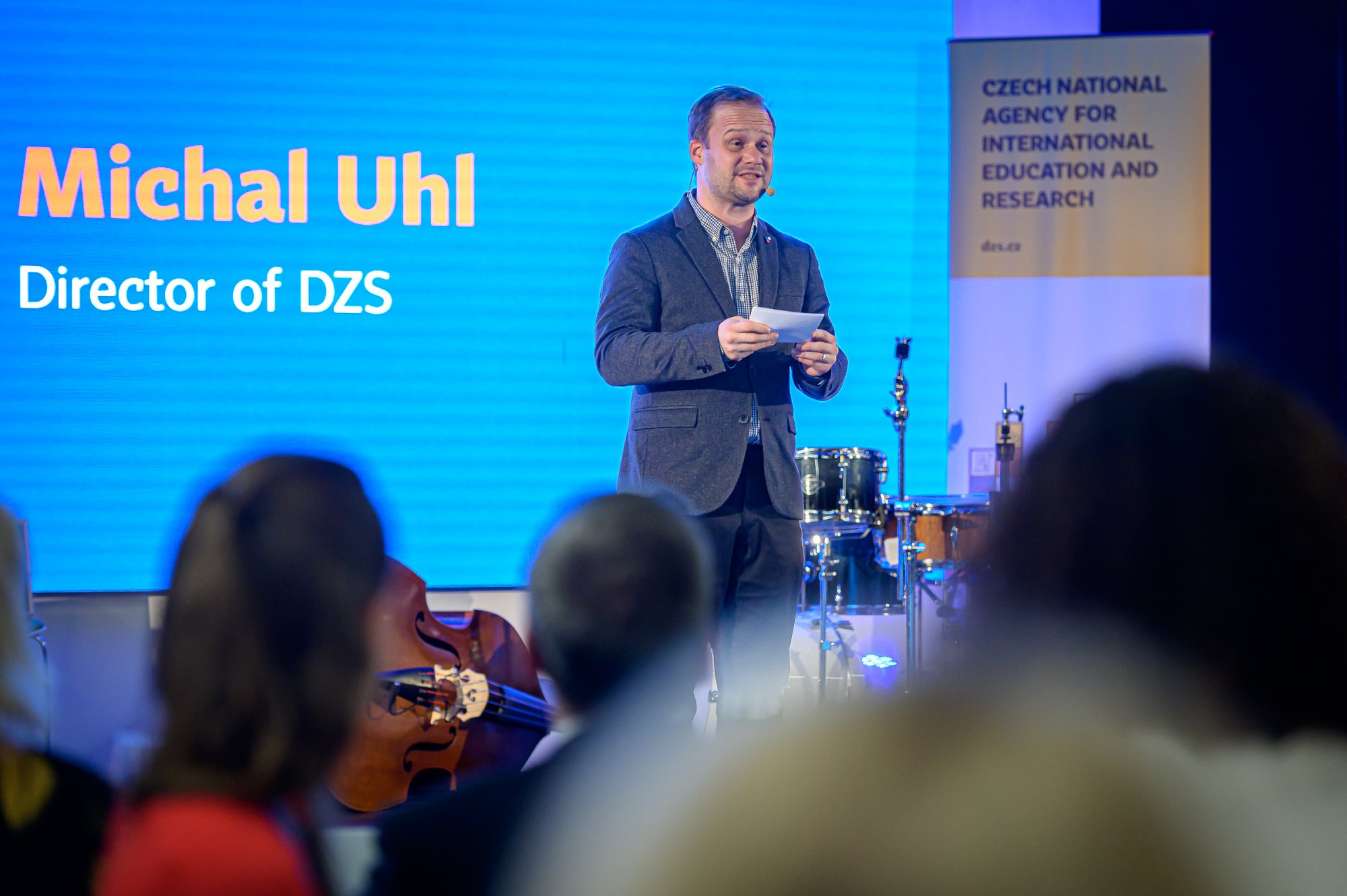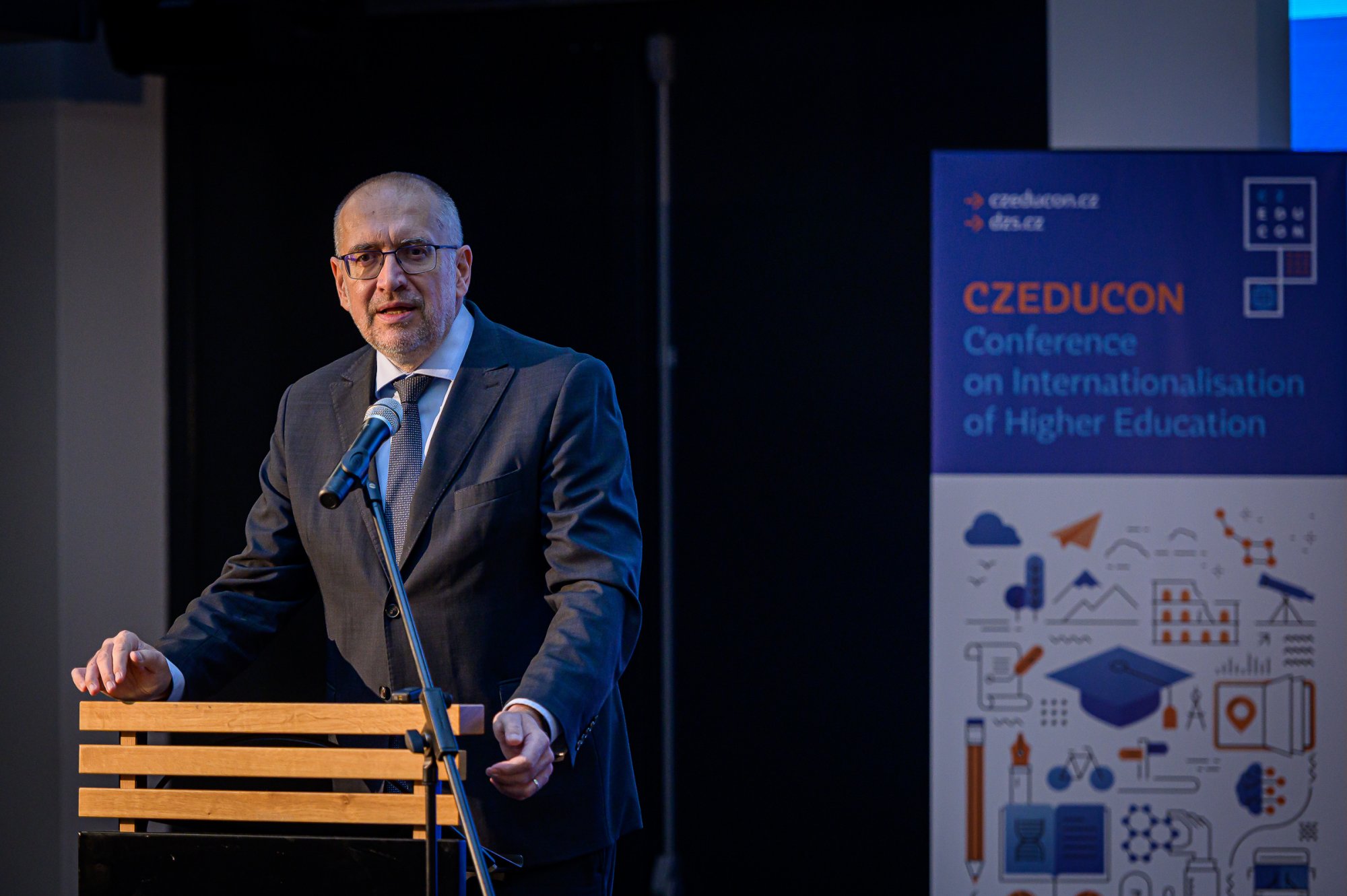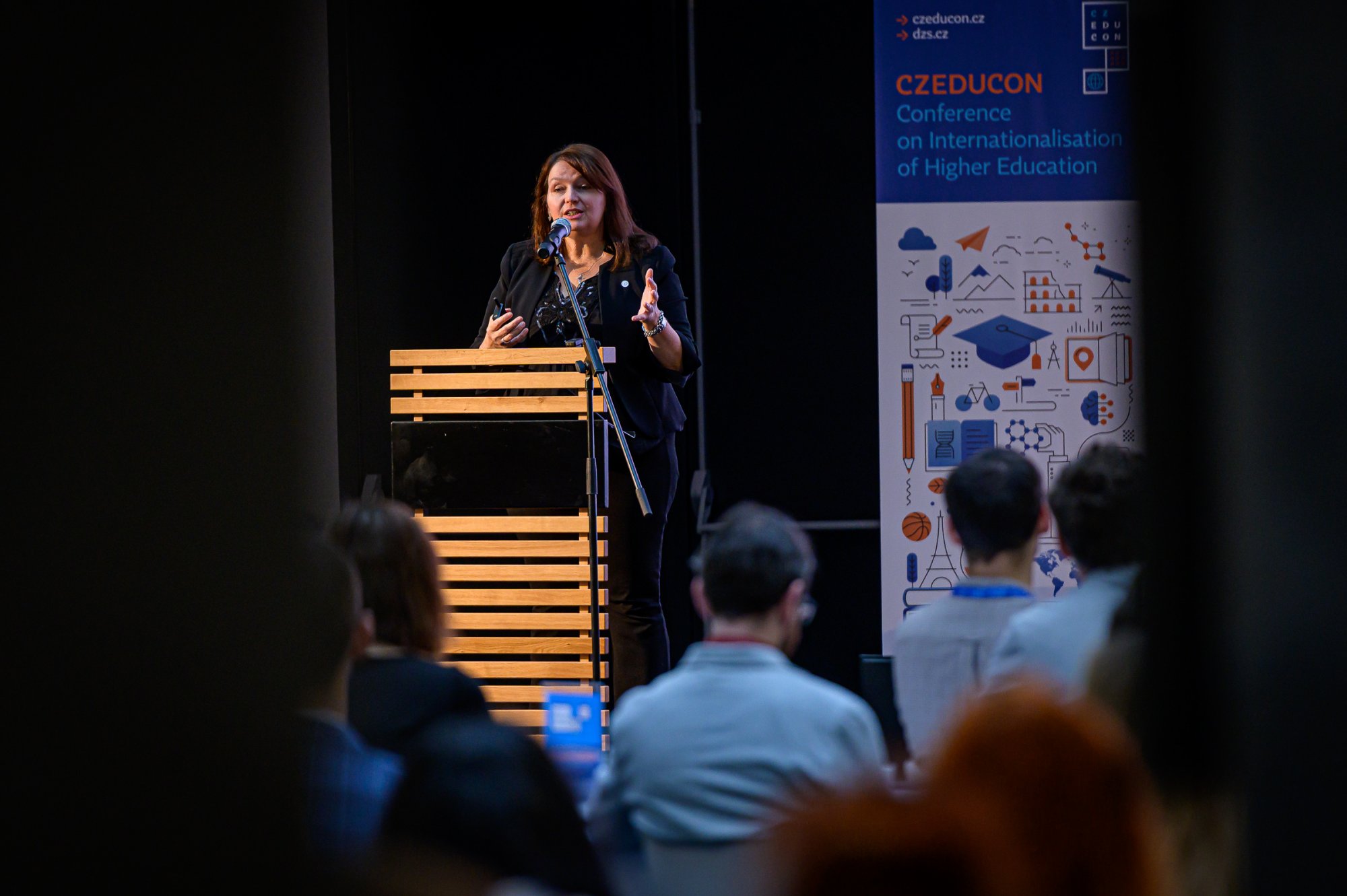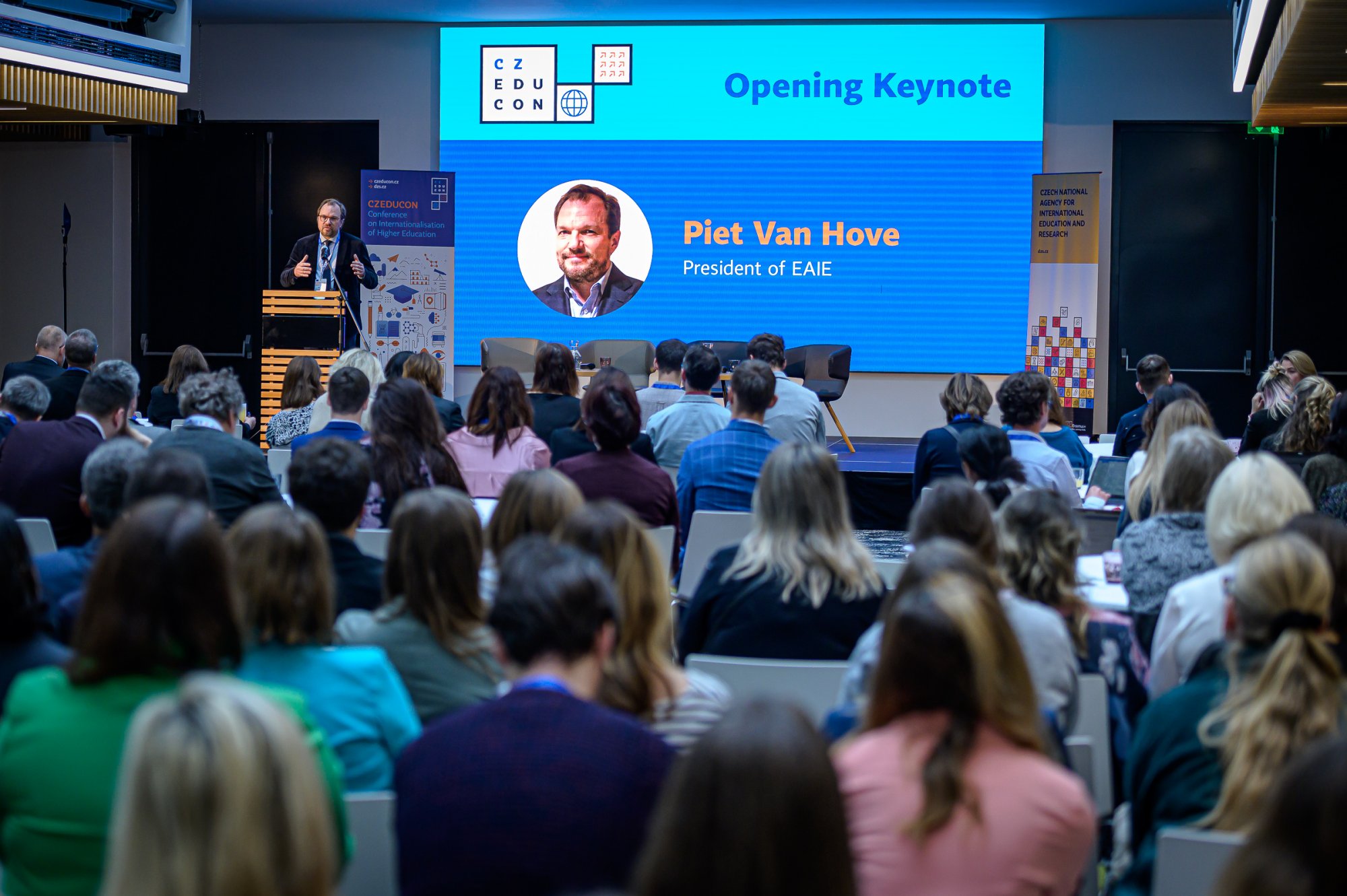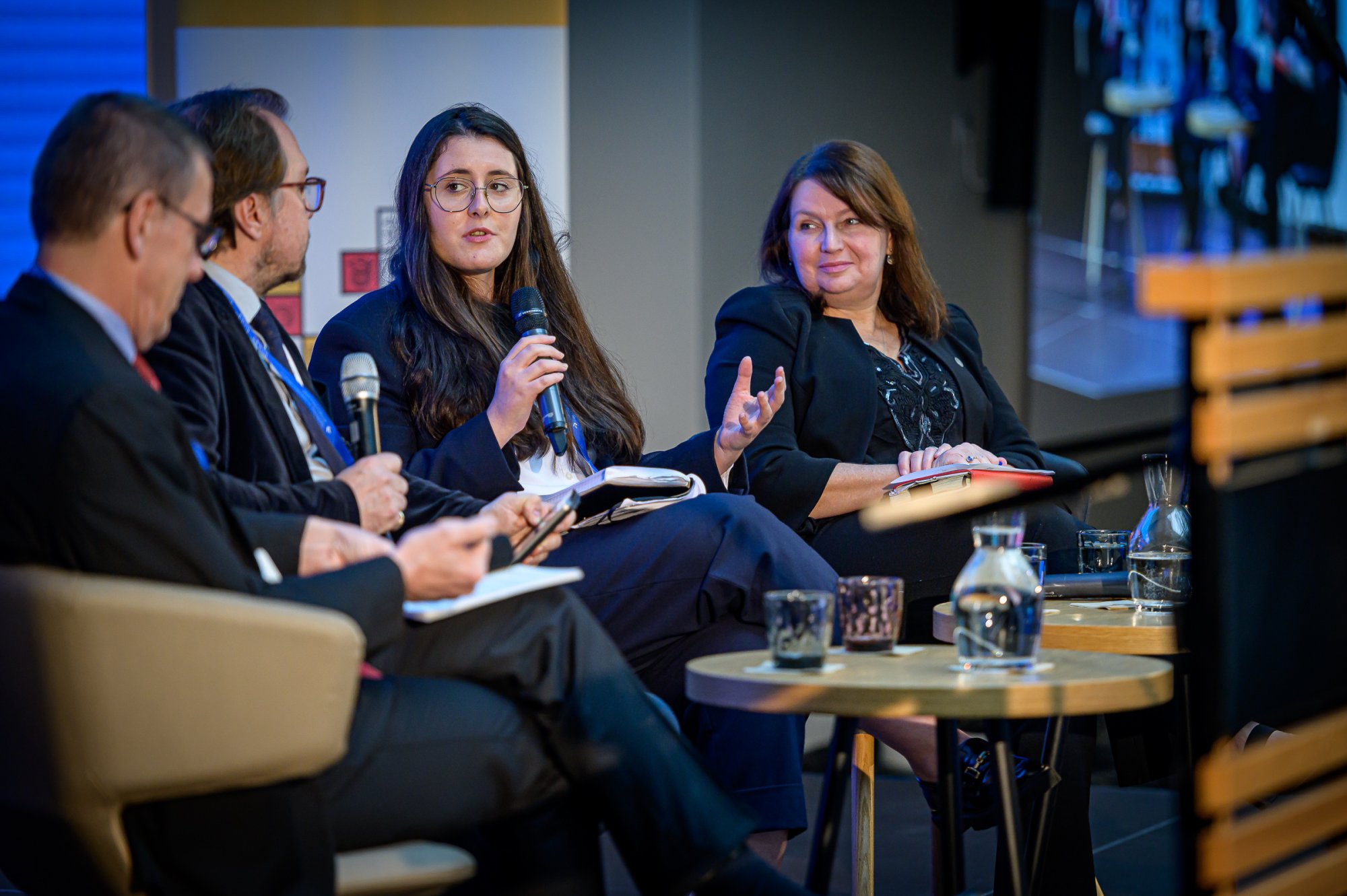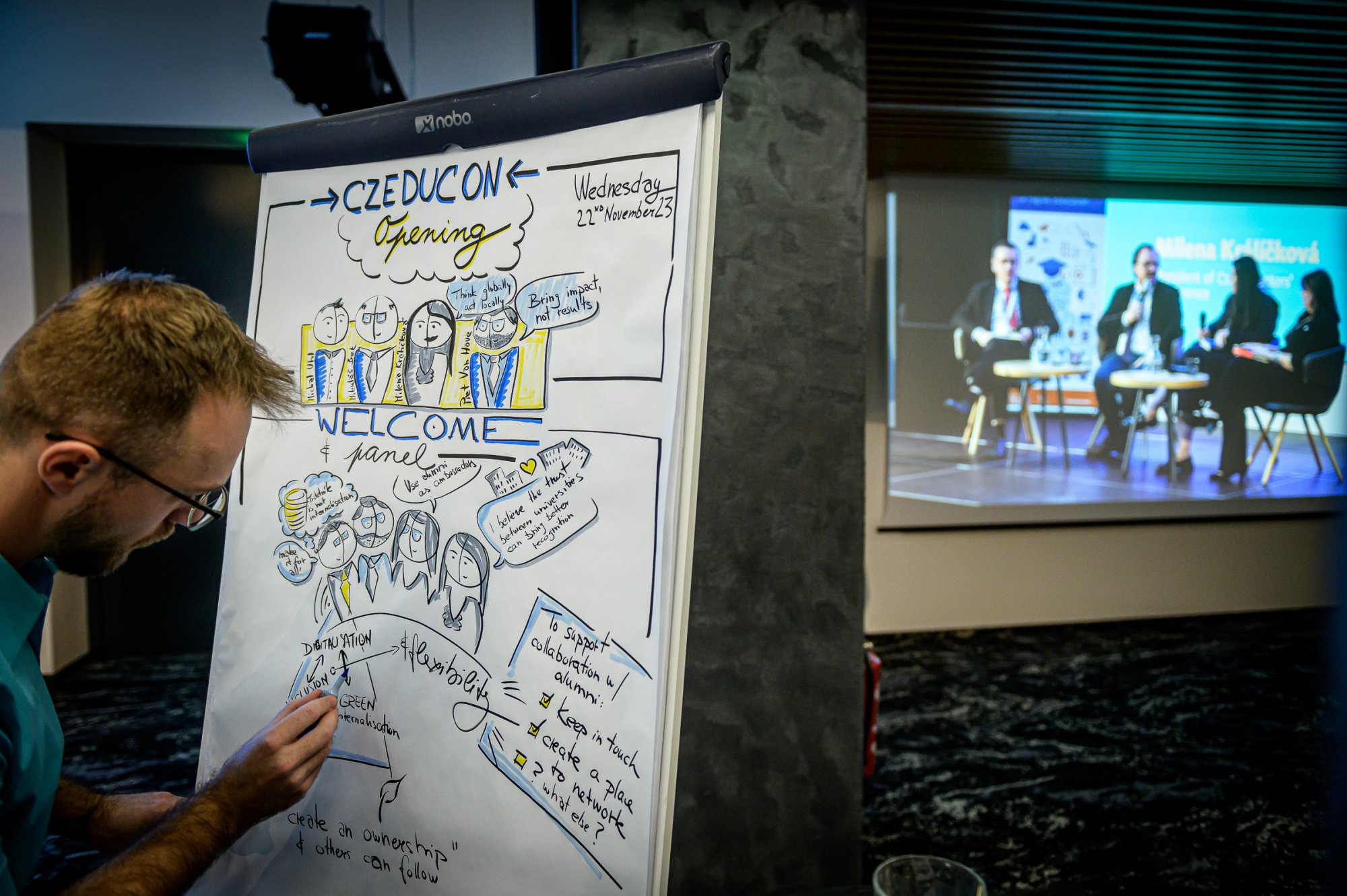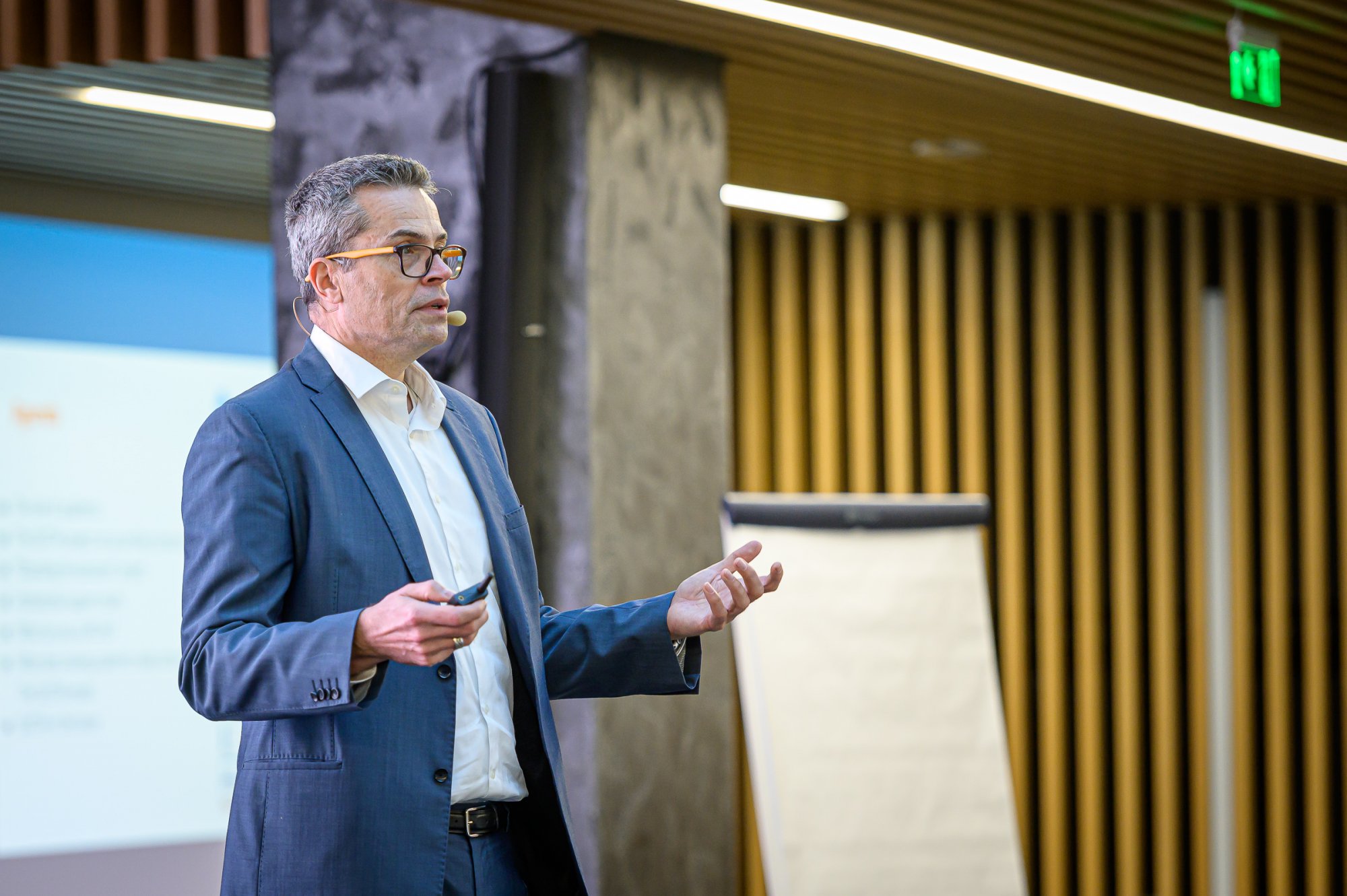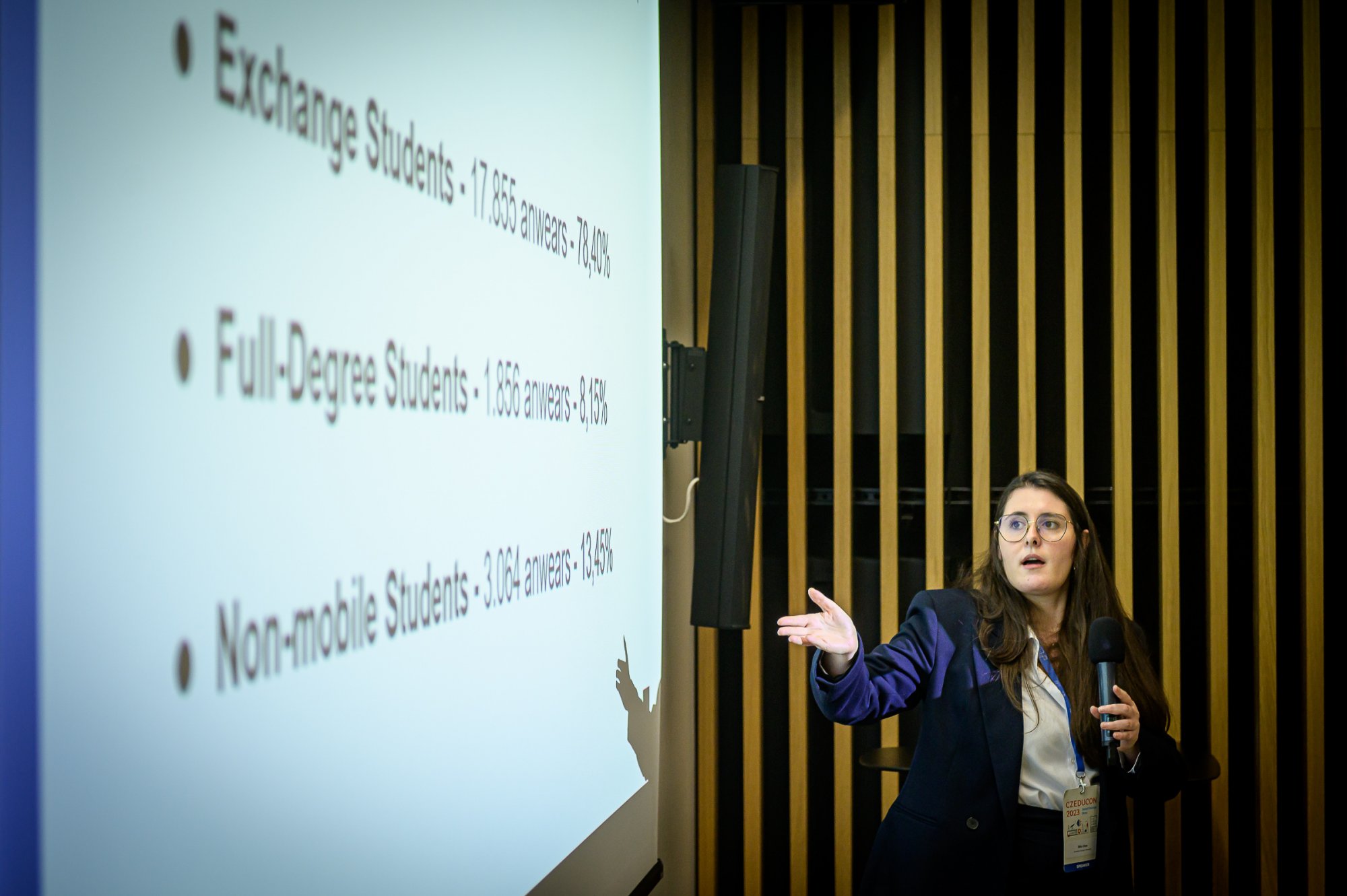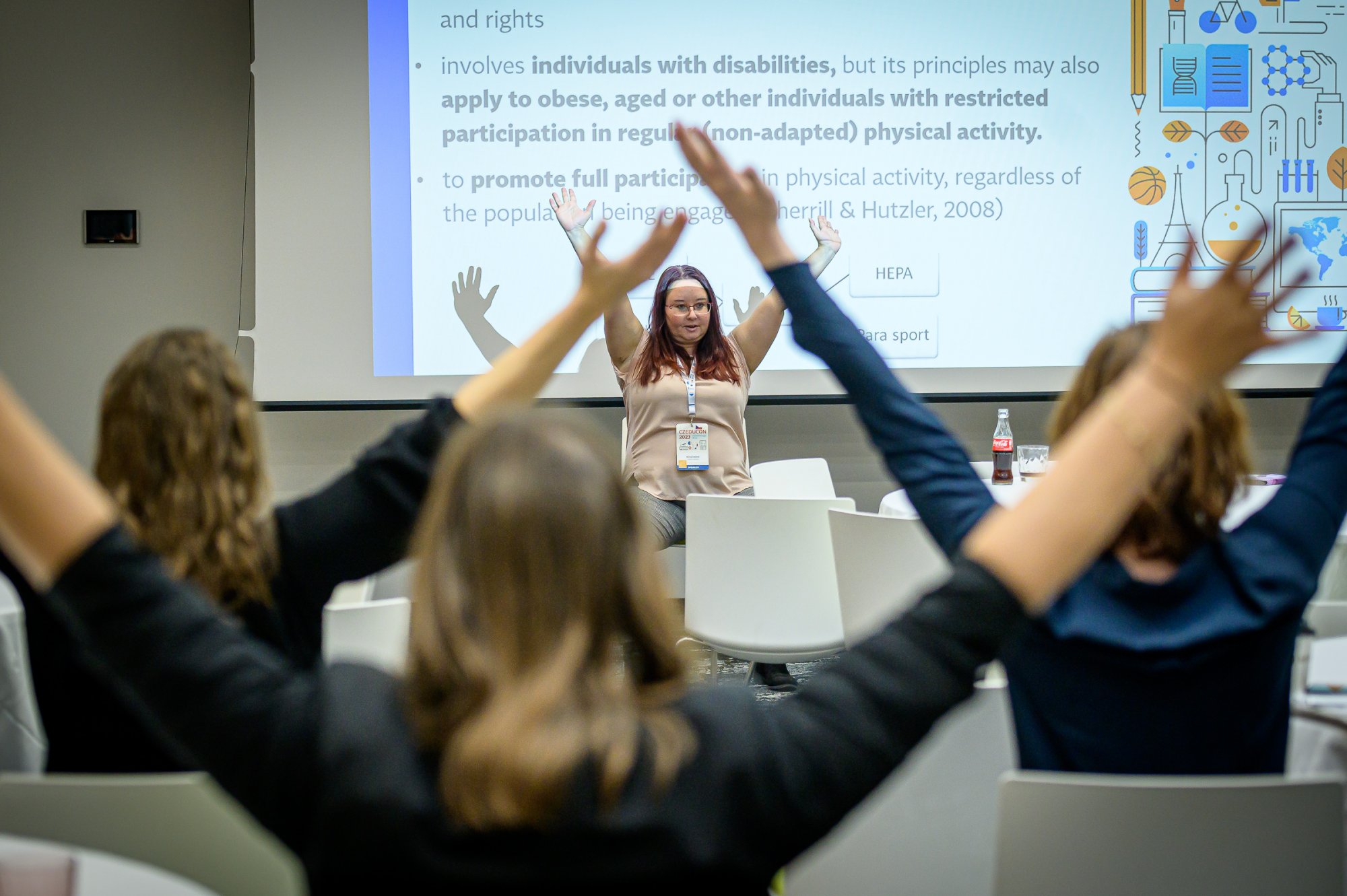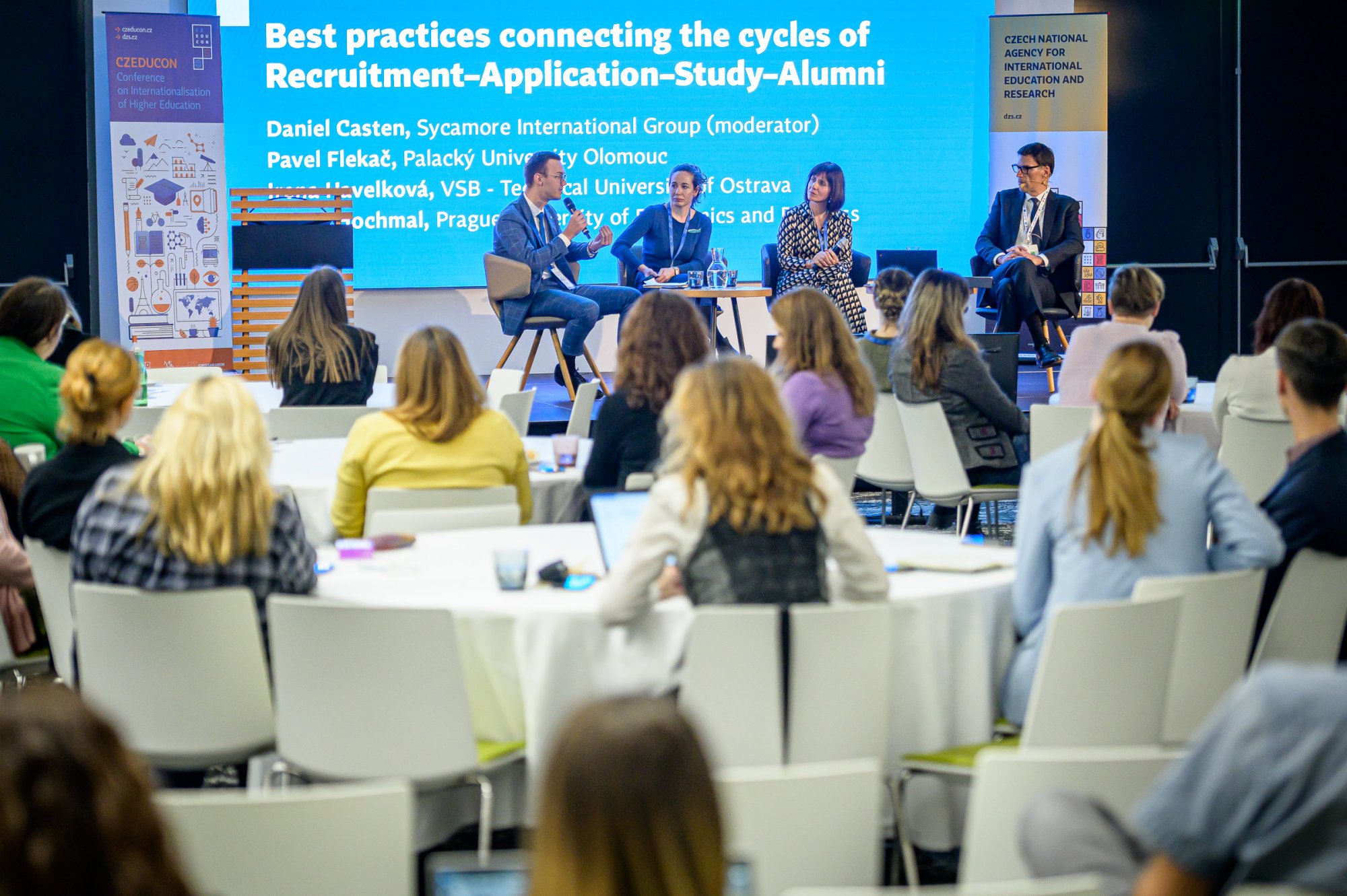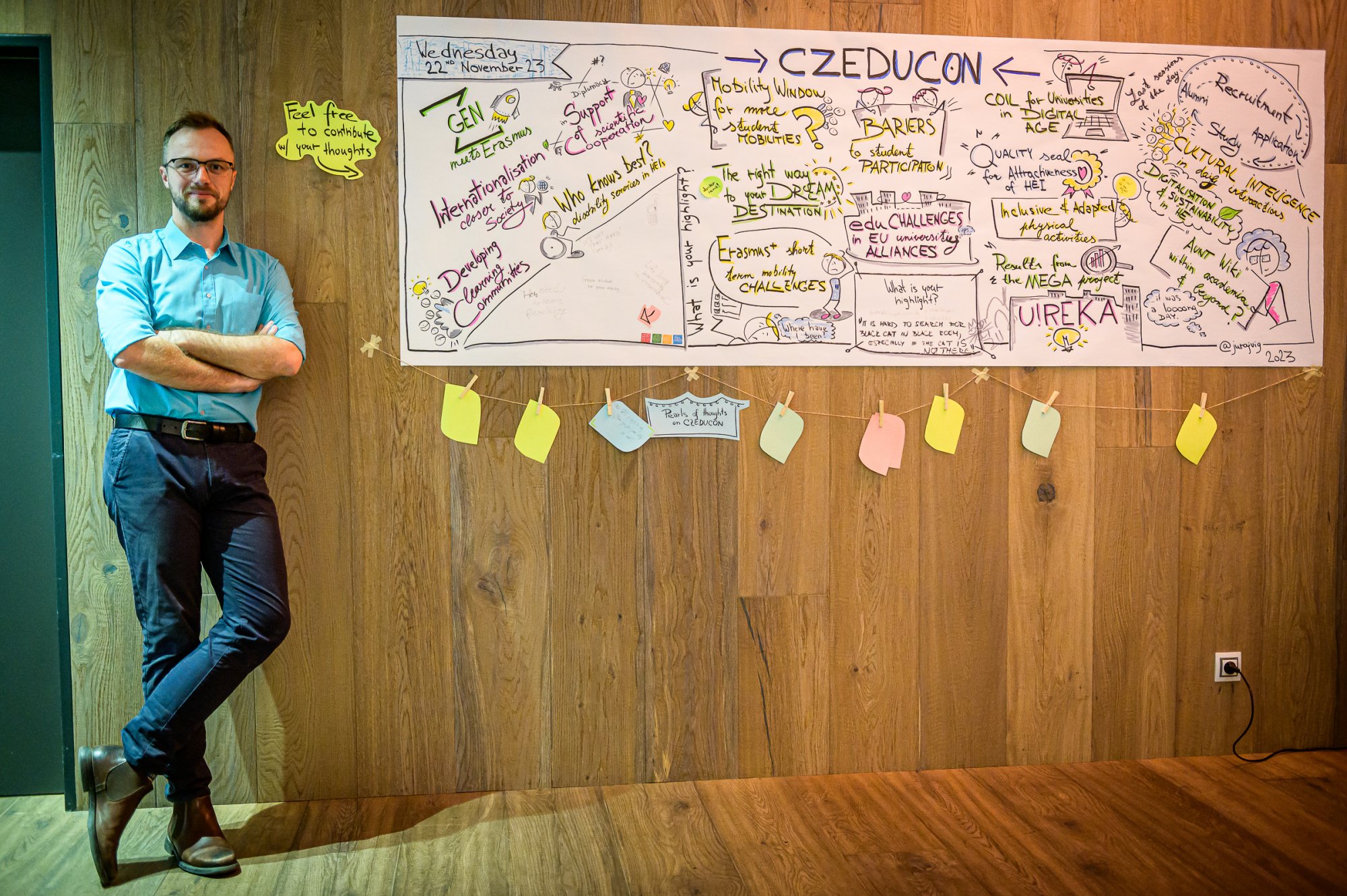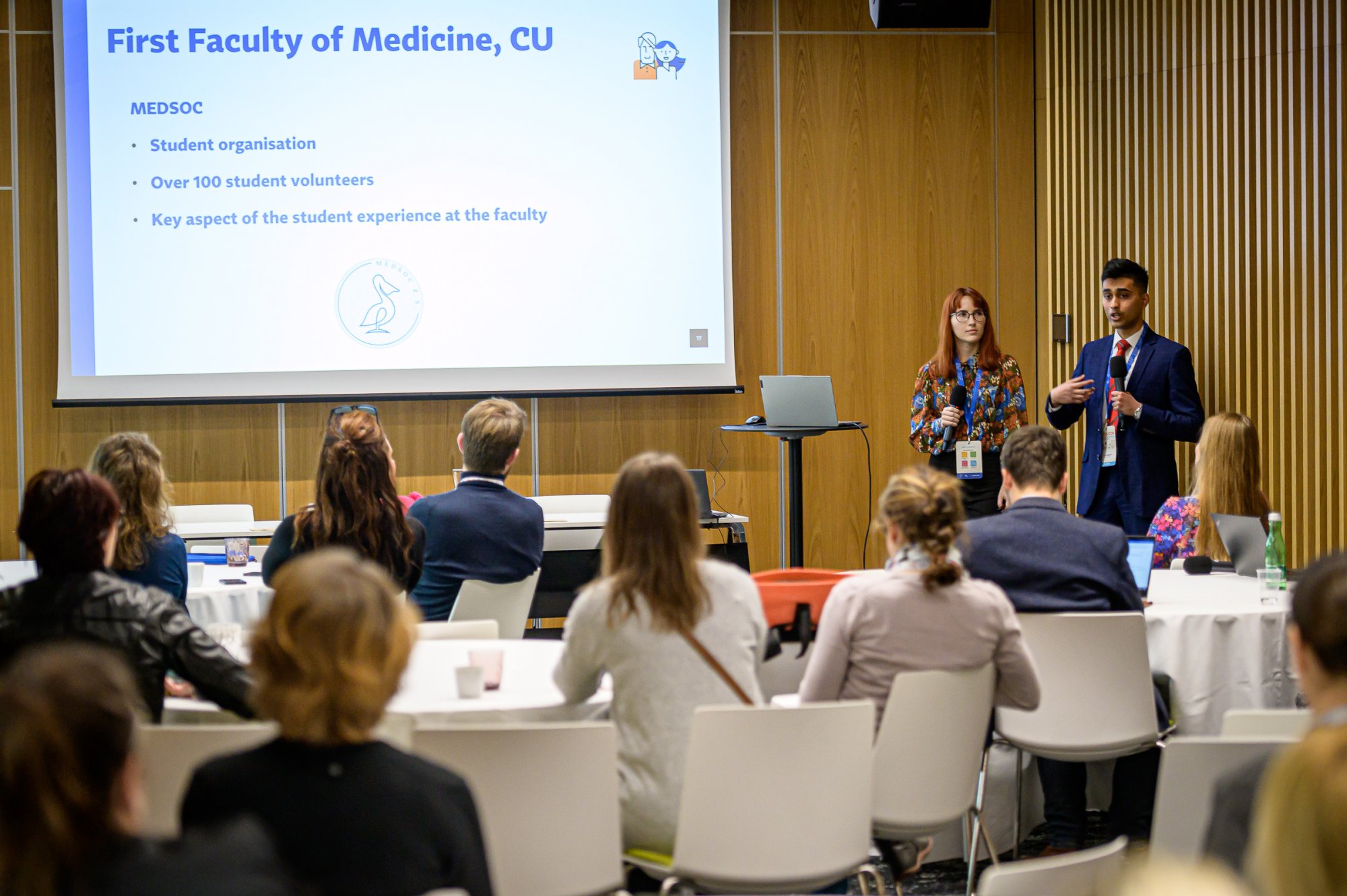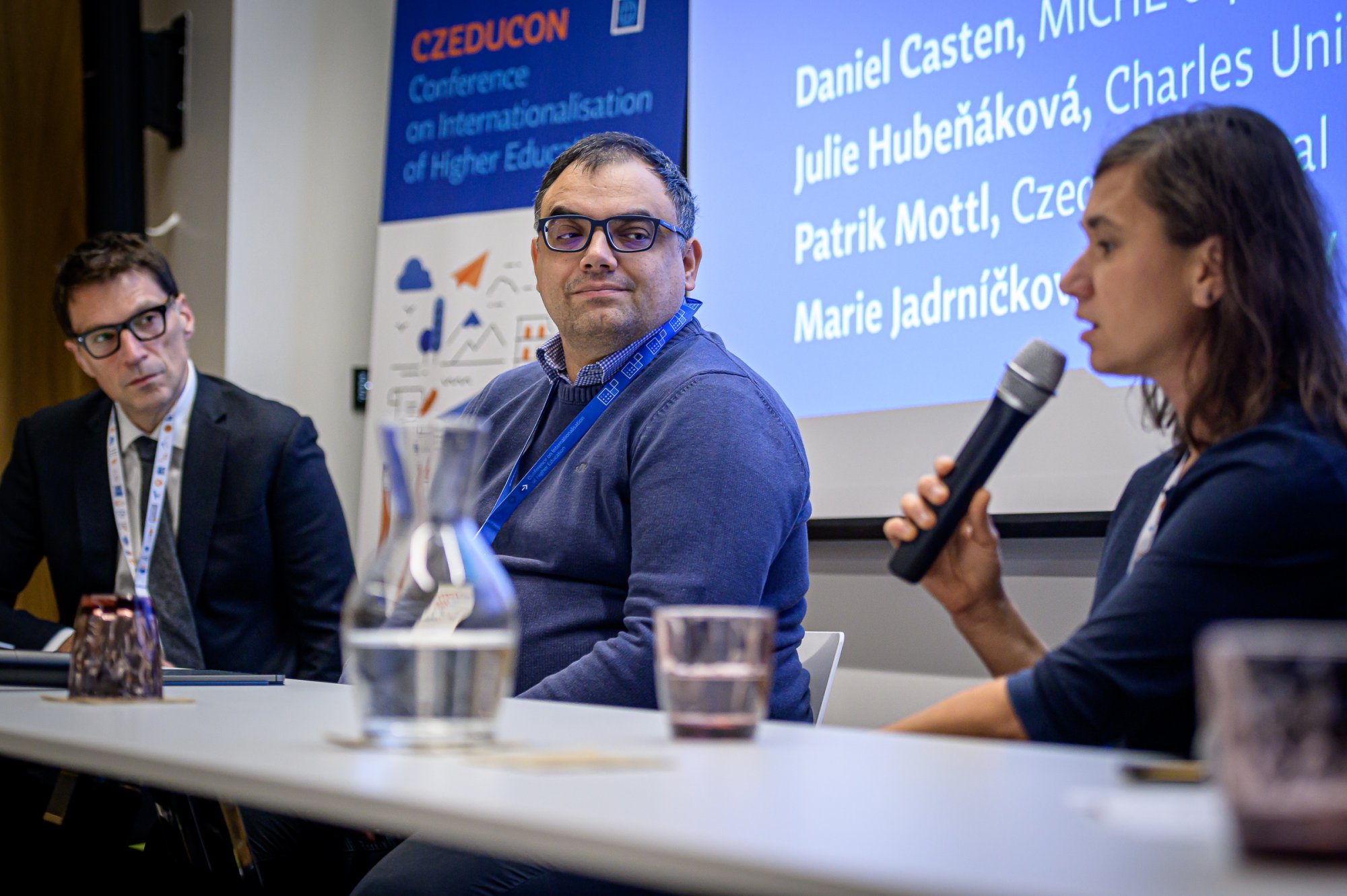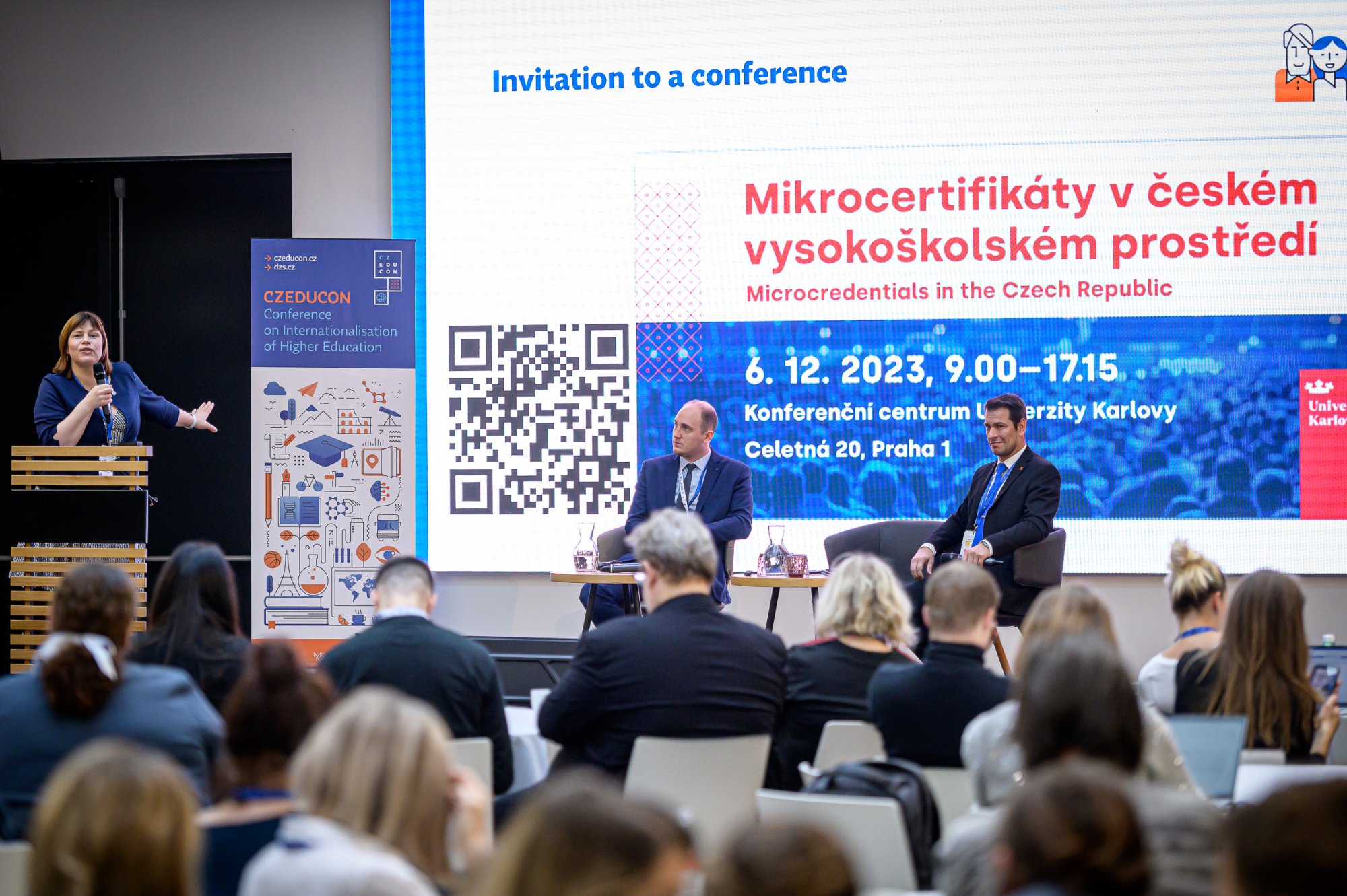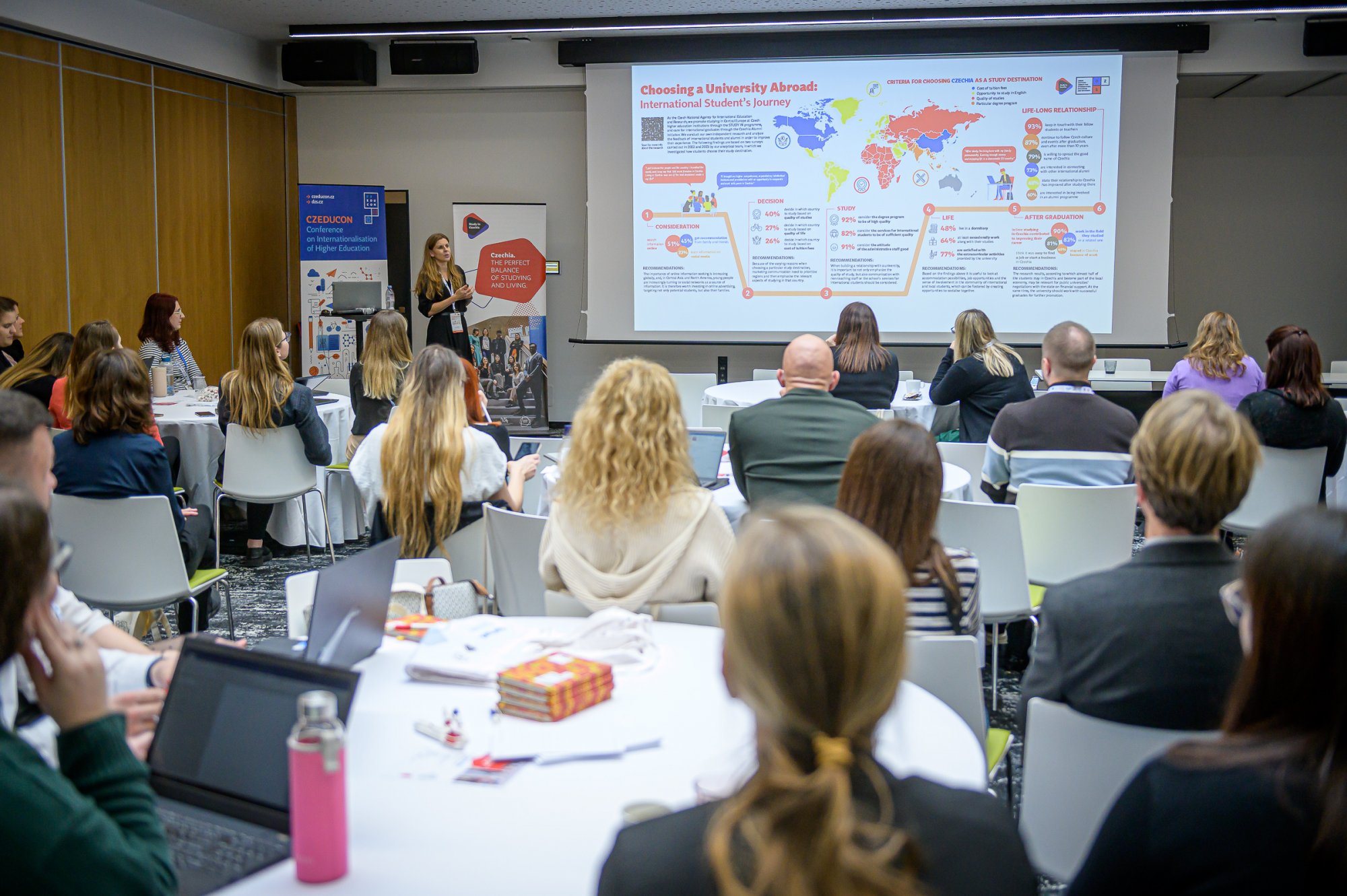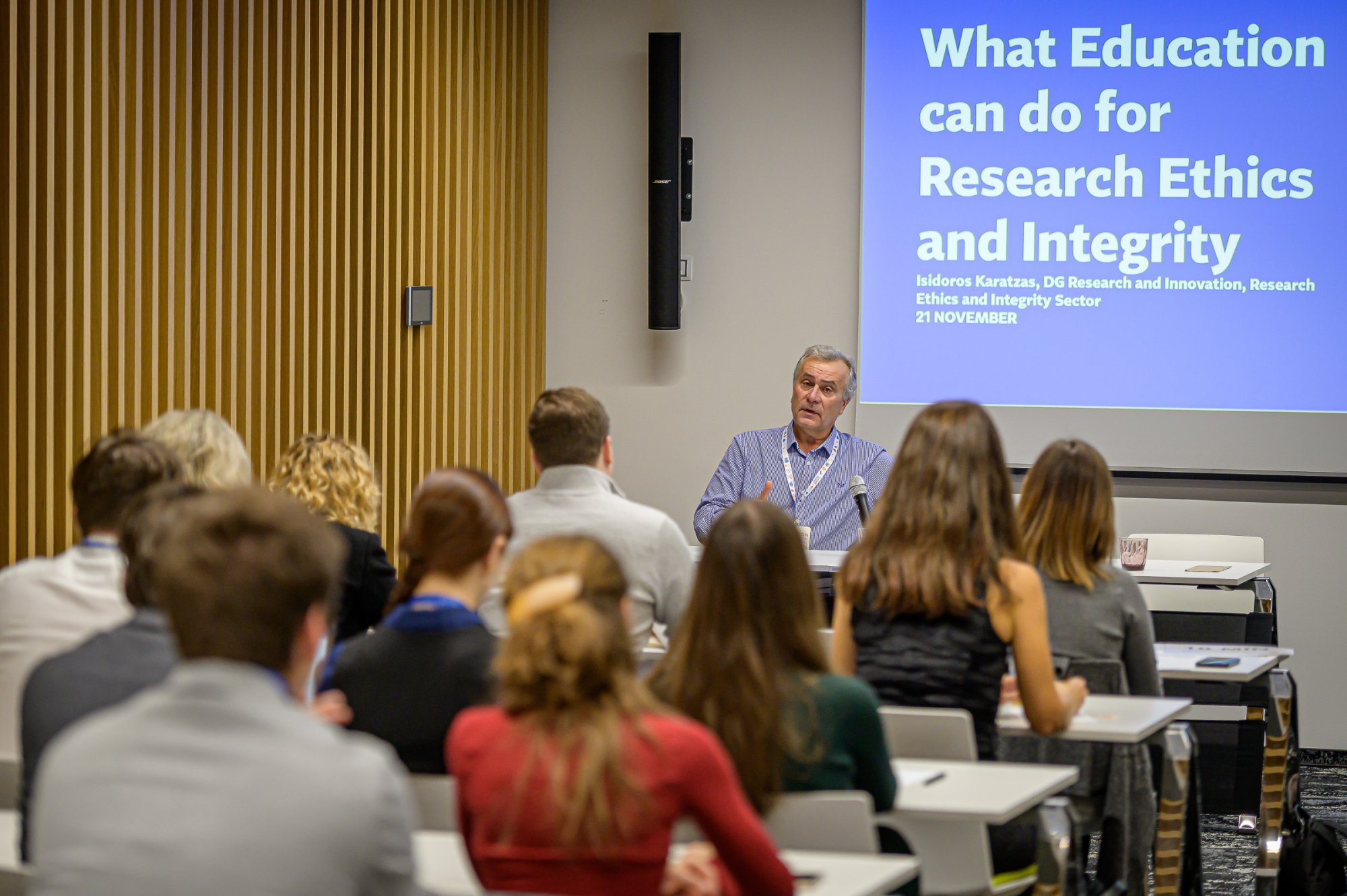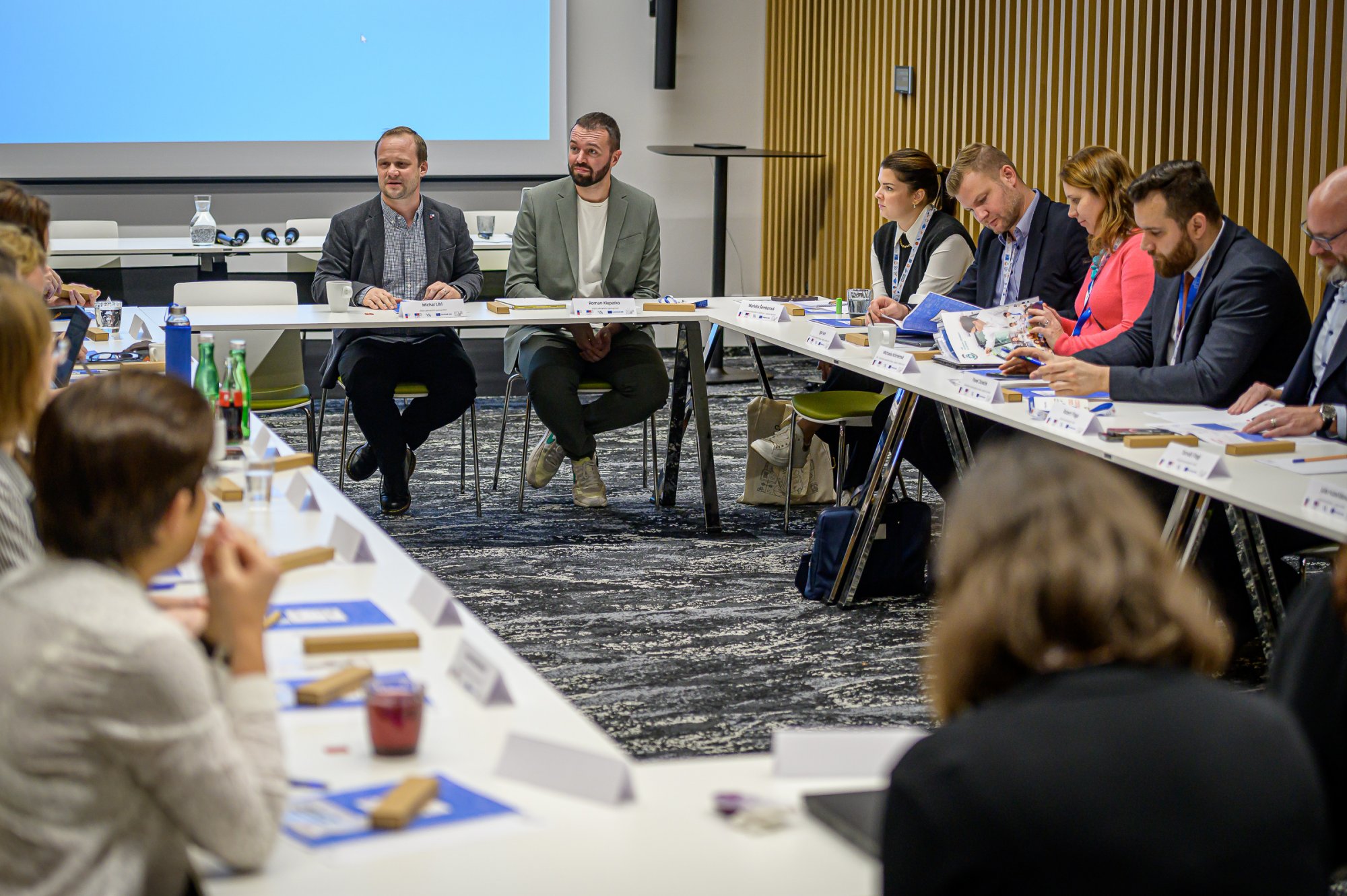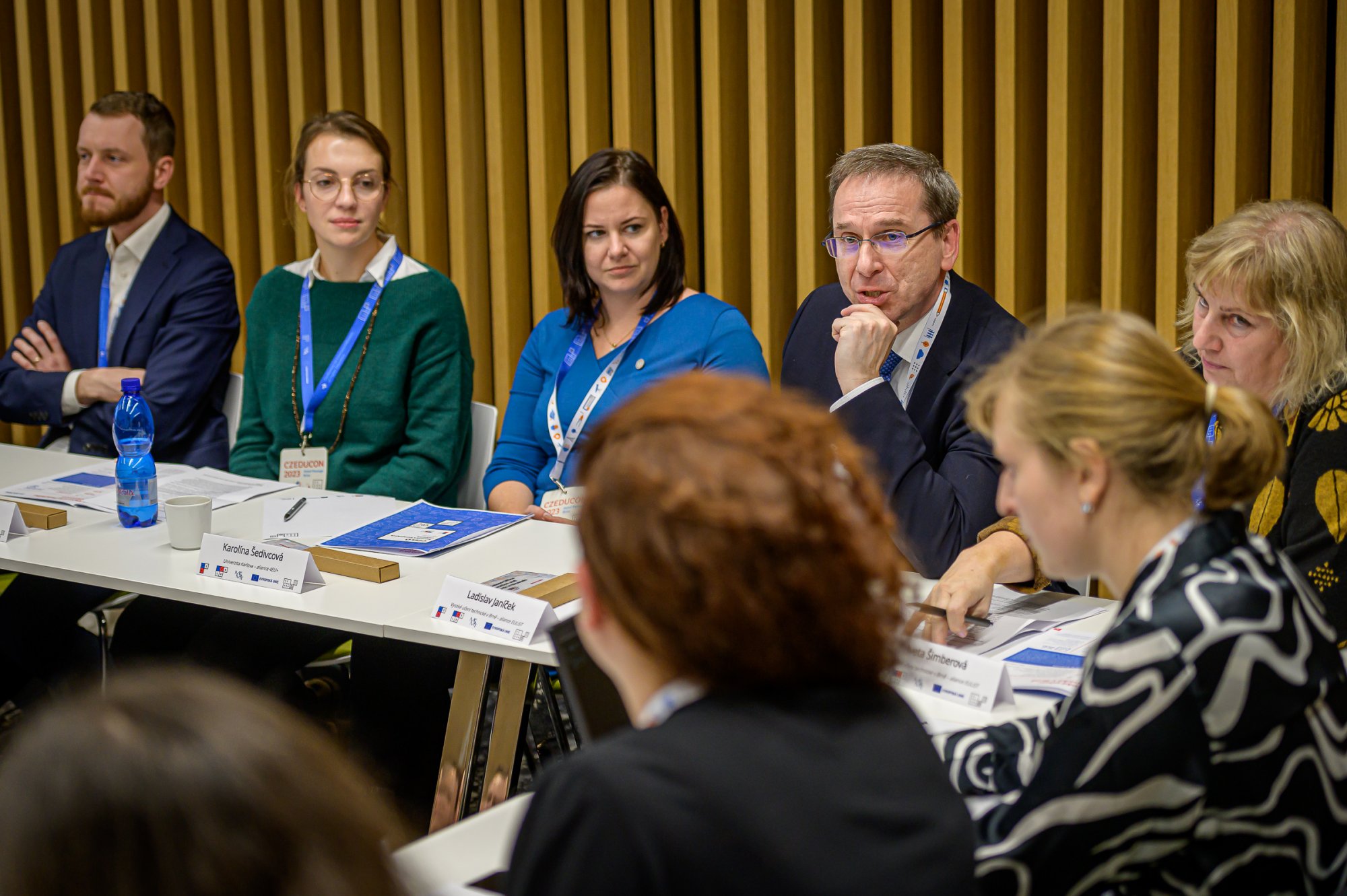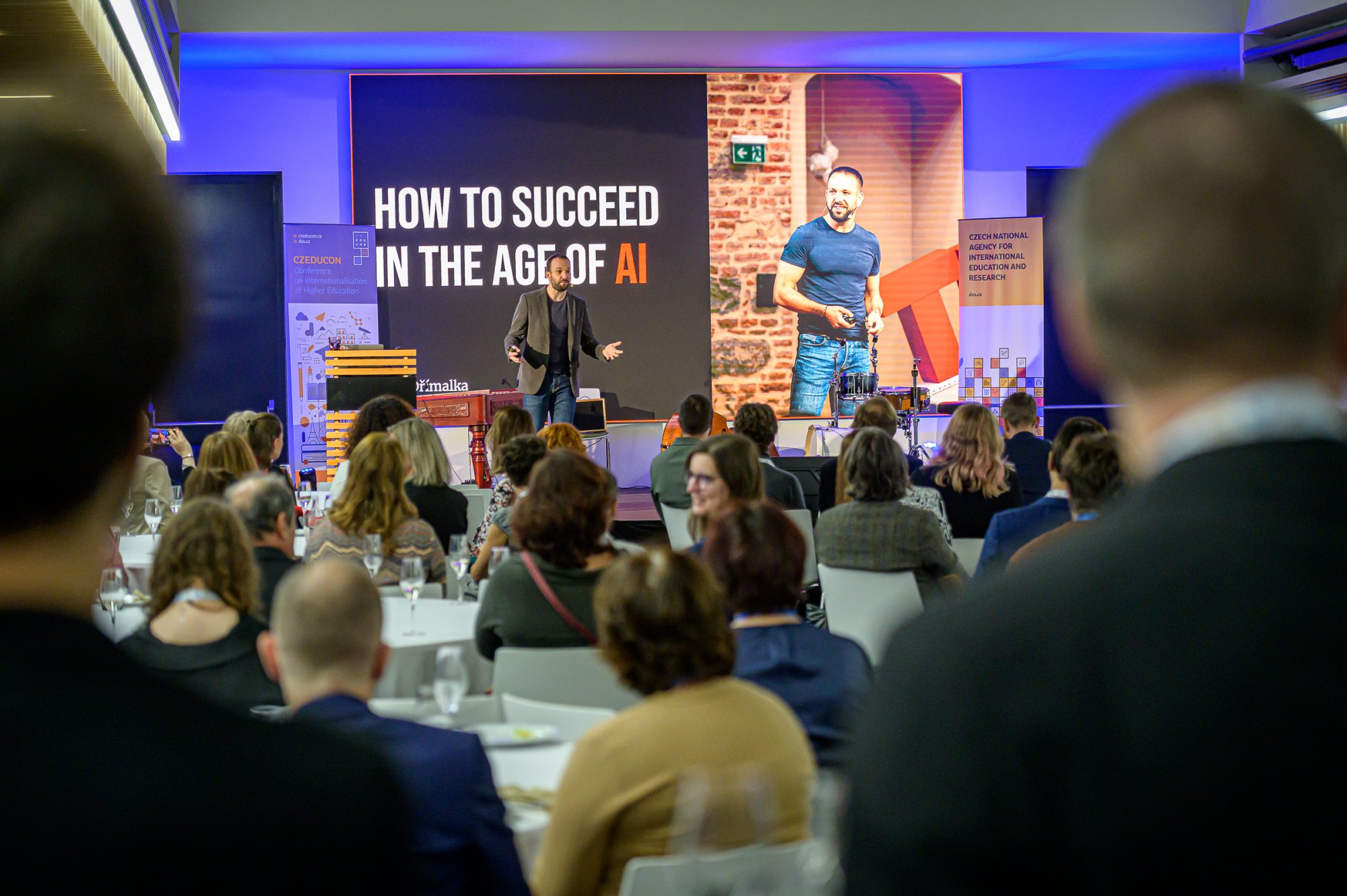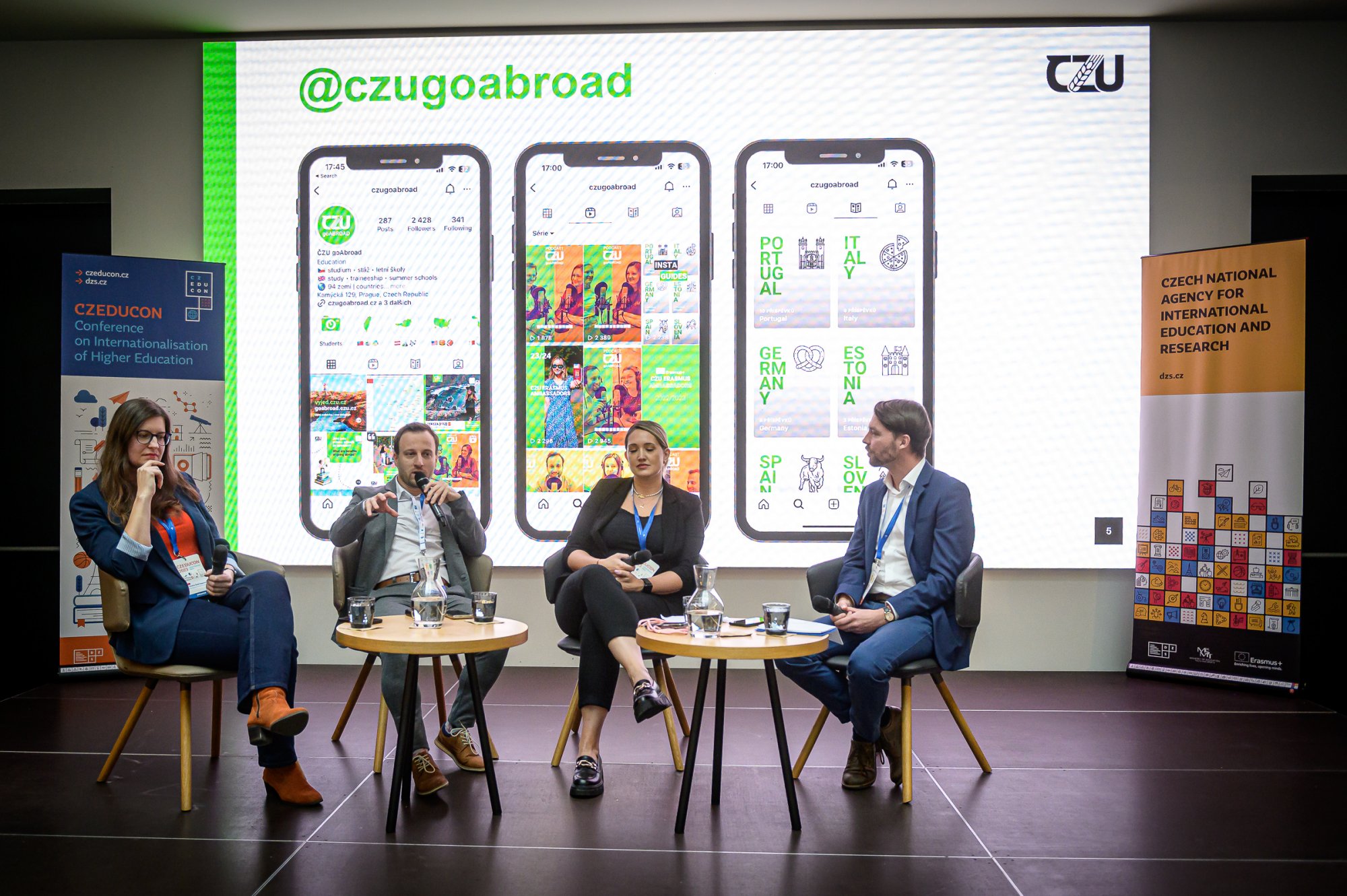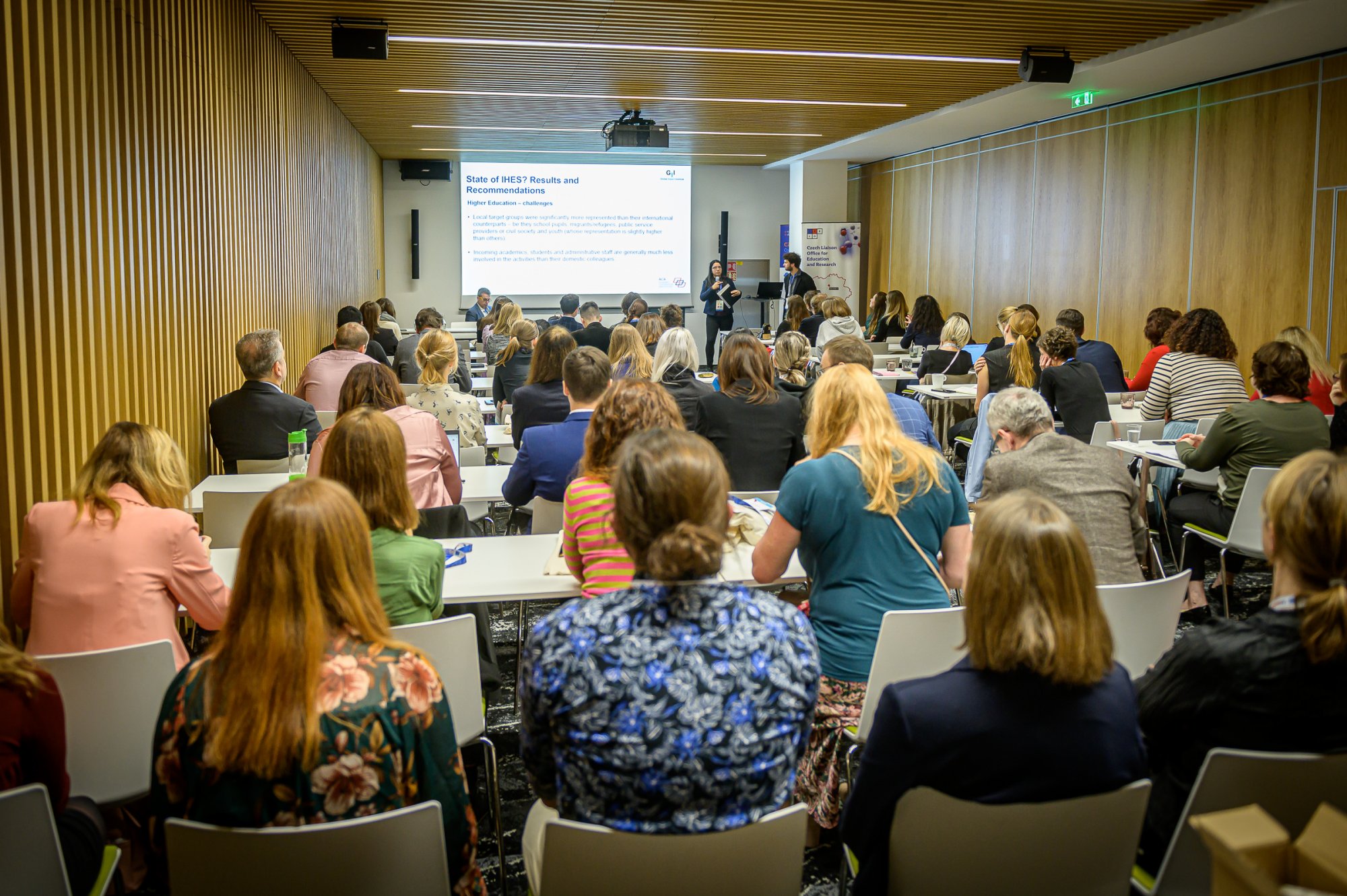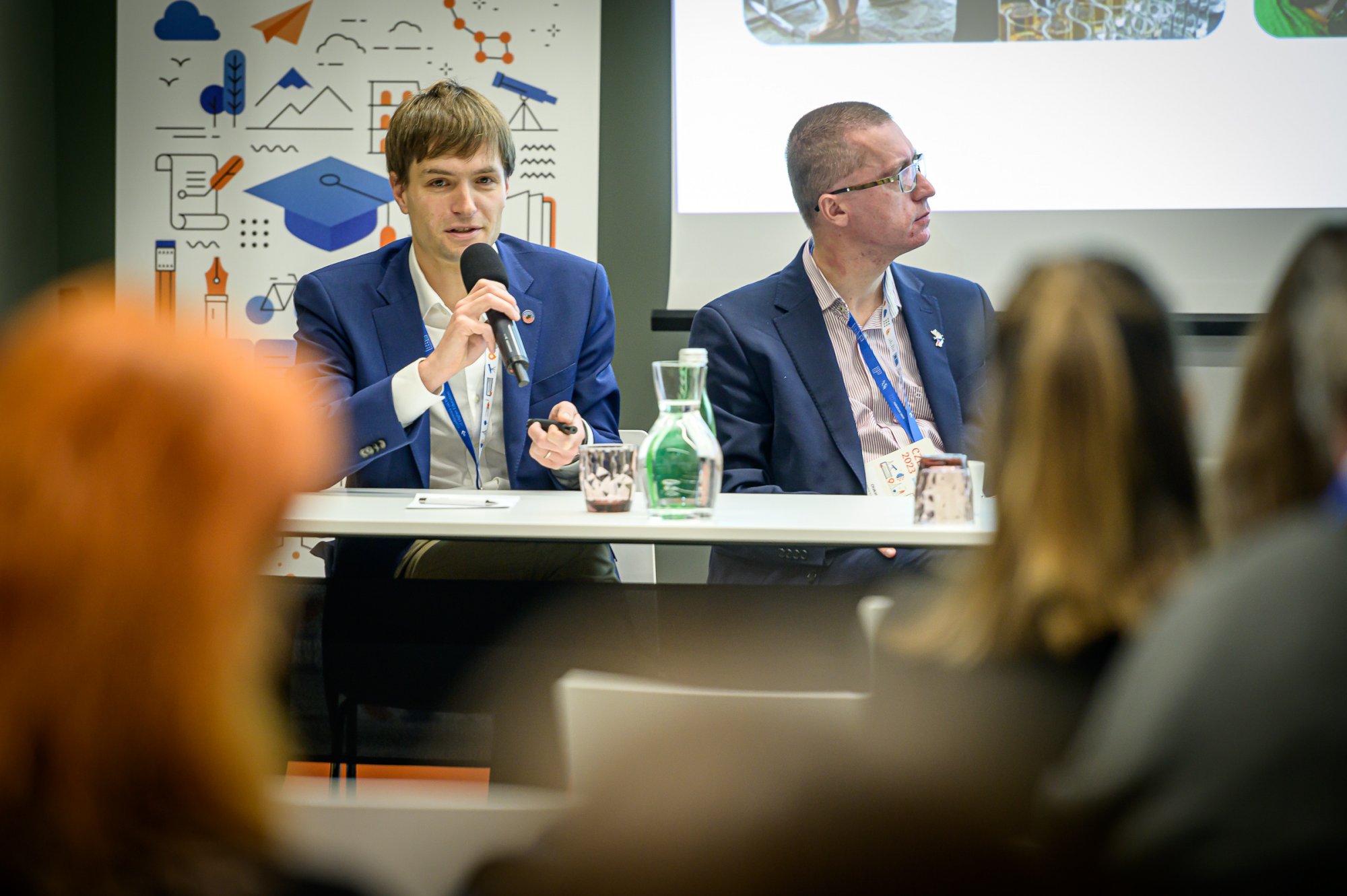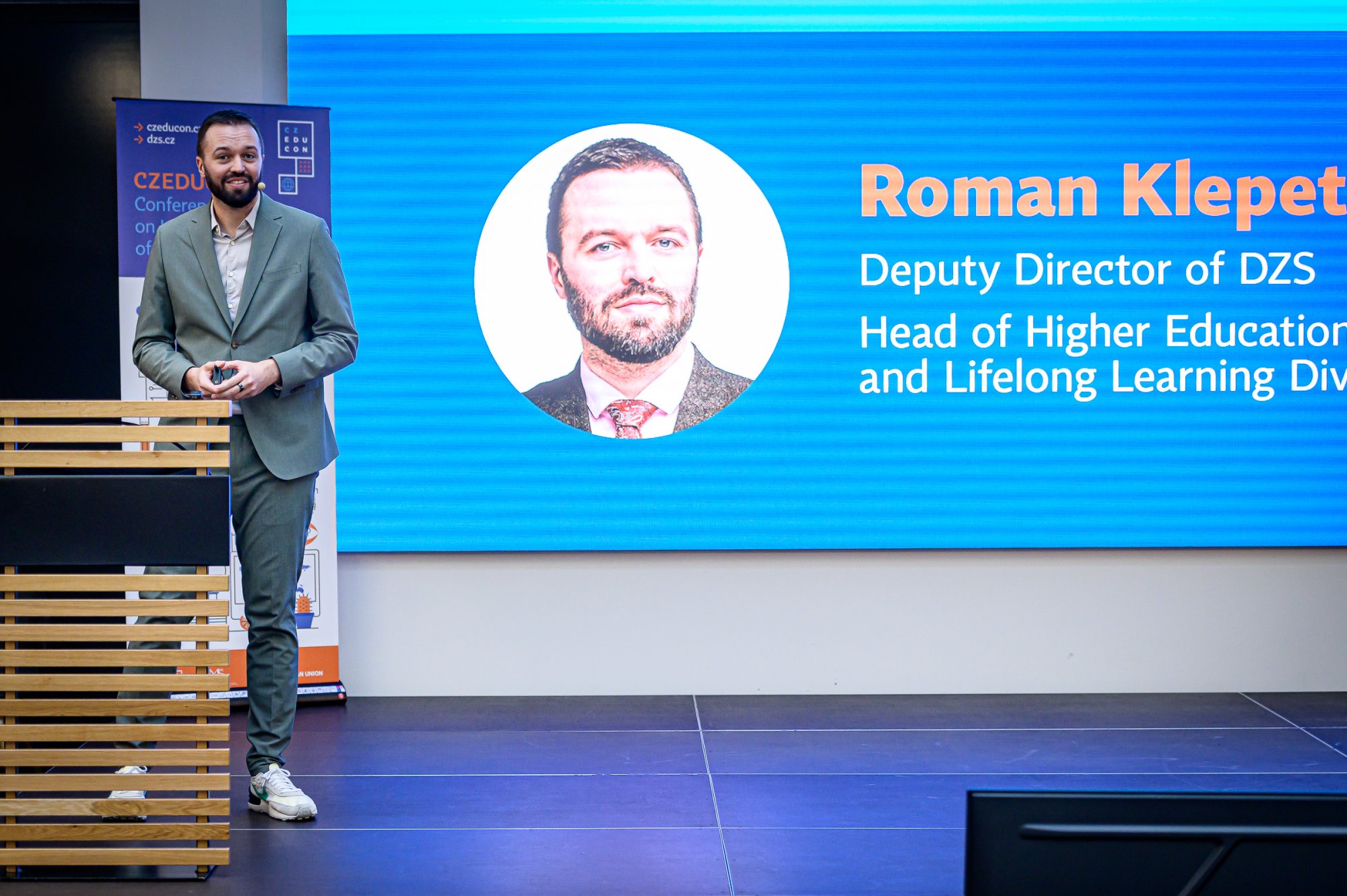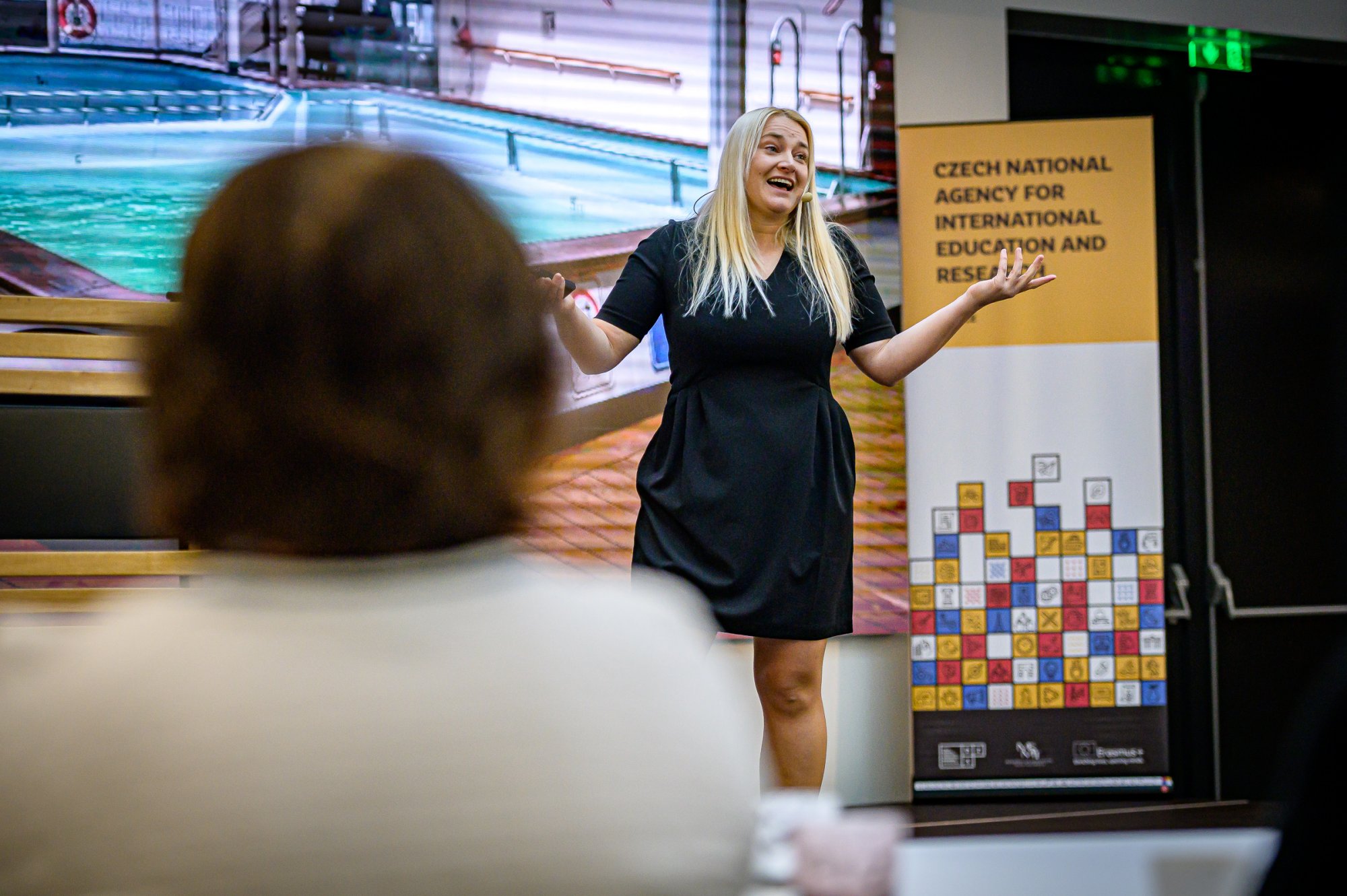Internacionalisation in the digital age. What did the fifth edition of CZEDUCON bring?
The three-day international conference CZEDUCON welcomed national and international experts in higher education in Brno.
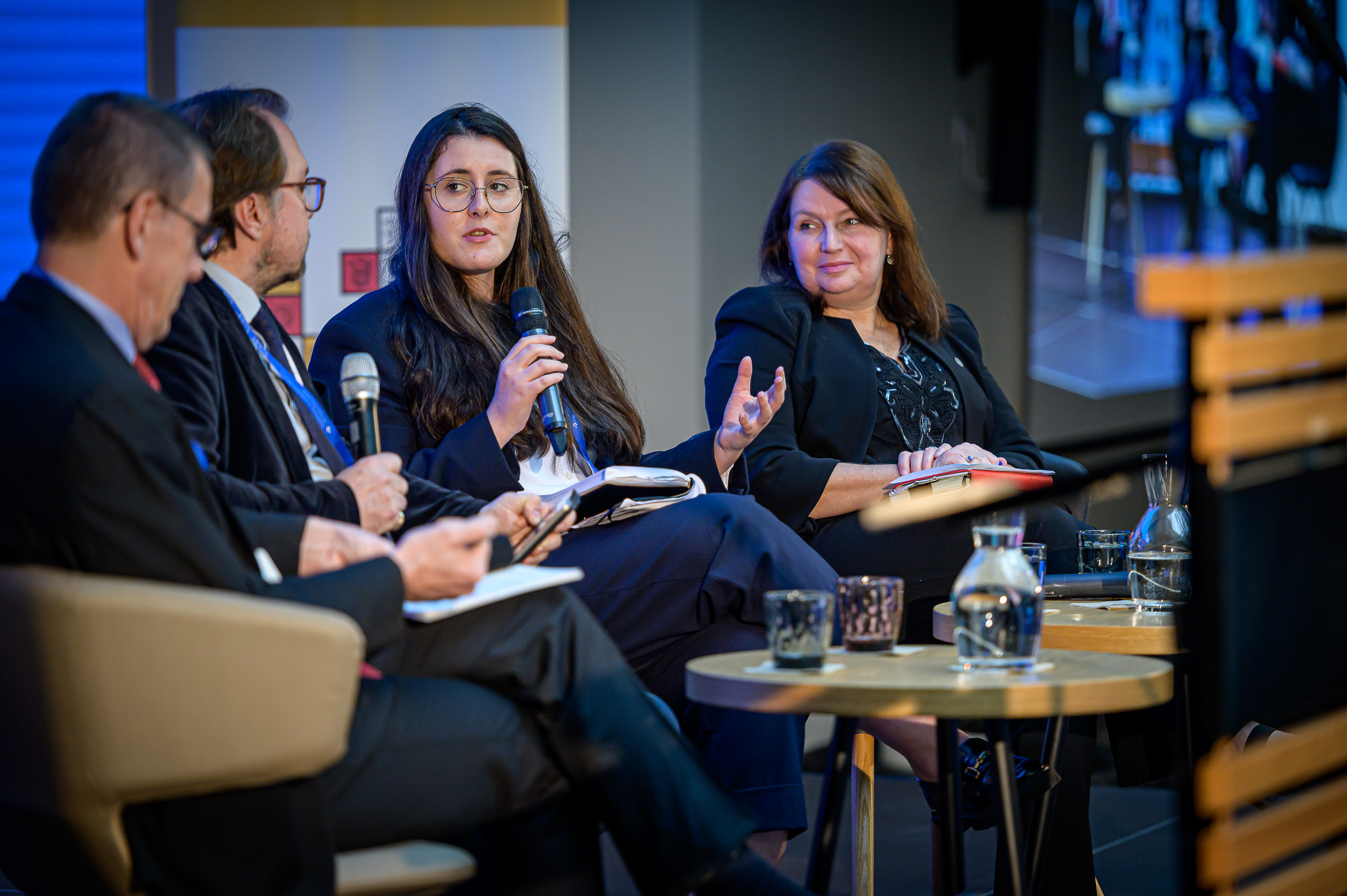 Opening panel with Piet Van Hove, Milena Králíčková, Gerhard Volz and Rita Dias. Photo: Petr Zewlakk Vrabec
Opening panel with Piet Van Hove, Milena Králíčková, Gerhard Volz and Rita Dias. Photo: Petr Zewlakk Vrabec
This year's CZEDUCON, co-organized with the Ministry of Education, Youth and Sports, focused on internationalization in higher education and attracted over 480 guests and 80 experts from the national and international scene. From 21 to 23 November at the Passage Hotel in Brno, guests had the opportunity to participate in more than forty thematic sessions on current topics in the field of digitalization, internationalization or collaboration within academia and beyond.
The aim of the conference, which was held entirely in English for the second time, was to share good practice, discover new opportunities or trends and establish cooperation across Europe. It is thus an ever-evolving platform for professionals and representatives of European universities and higher education. It offered a platform to foster relationships, share experiences and knowledge in the field of internationalisation so that participants could transfer this knowledge to their home universities and put it into practice. Representatives from national agencies and university leaders were also present to jointly address the pressing issues of developing and implementing strategies for inclusion and internationalisation. What did we focus on this year at CZEDUCON?
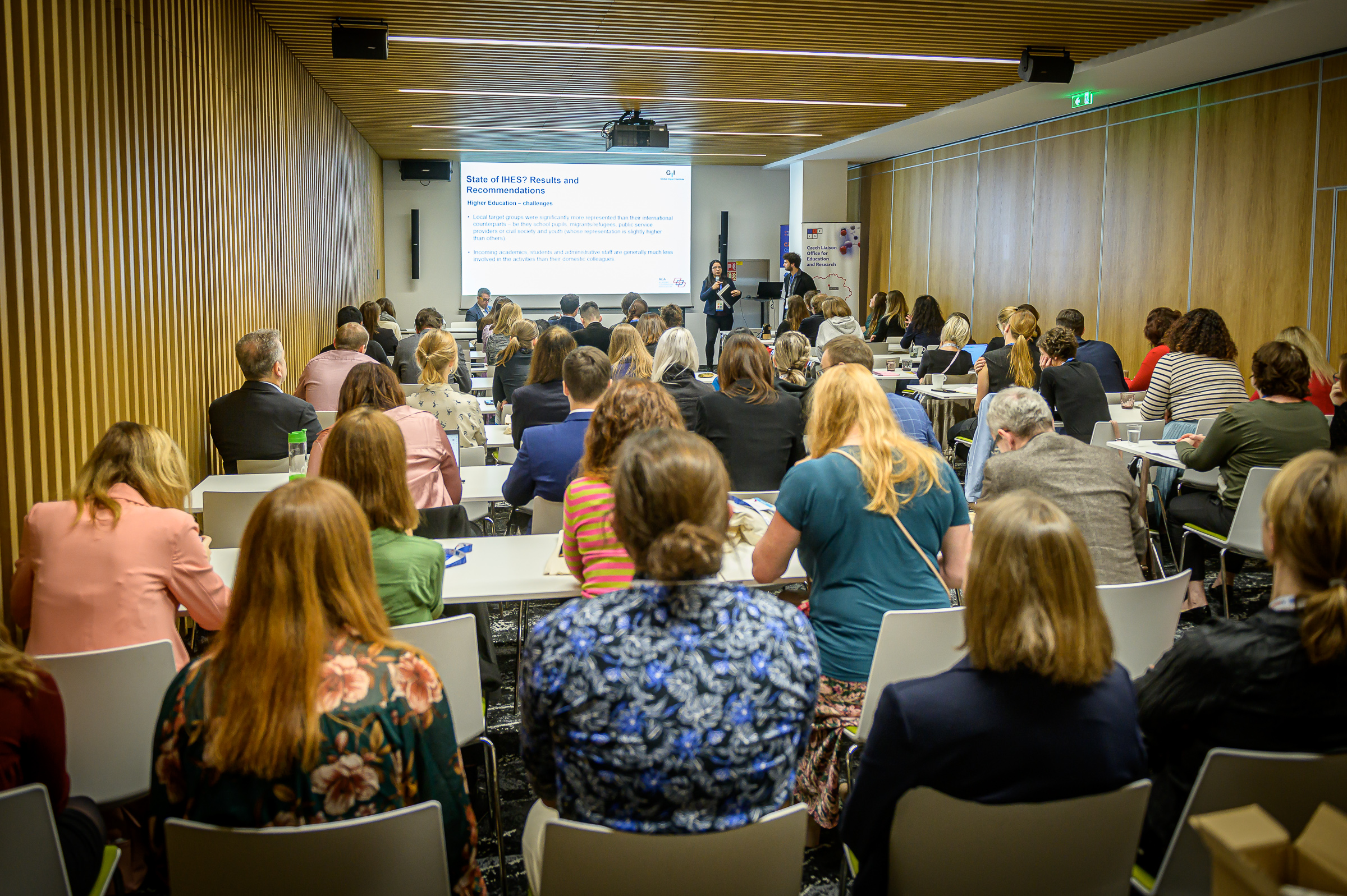 The three days of the conference were full of lectures, seminars and workshops. Photo: Petr Zewlakk Vrabec
The three days of the conference were full of lectures, seminars and workshops. Photo: Petr Zewlakk Vrabec
Michal Uhl, Director of the Czech National Agency for International Education and Research (DZS), Mikuláš Bek, Minister of Education, Youth and Sports, Rector of Charles University and President of the Czech Rectors' Conference Milena Králíčková and Piet Van Hove, President of the European Association for International Education (EAIE), agreed in their opening speeches on the importance of discussing challenges and sharing solutions in the context of global higher education. “In our interconnected world, fostering connections among nations is crucial. But it all comes with its own set of challenges. I believe that European universities will be excellent inclusive and globally competitive institutions that will continue to solve current and future challenges,” said Mikuláš Bek. “I truly believe that European university alliances are a game changer. It's important that alliances exchange experiences between each other and have dedicated people,” stressed Milena Králíčková. “We need graduates that have a sense of responsibility, a sense of right and wrong, and a desire to contribute to building a better and more just society. To contribute to the better world,” summarised Piet Van Hove.
In a joint opening panel, Piet Van Hove and Milena Králíčková, together with Gerhard Volz, Director for International Cooperation in Higher Education (OeAD) and Rita Dias, President of Erasmus Student Network International, discussed the main topics of the conference. "Mobility must become a reality for all students, especially those who really need the opportunity to go abroad and experience it," urged Rita Dias, whose organisation carried out research to explore the barriers for students who do not participate. These include, in particular, issues related to housing or credit recognition. In a session on microcertificates, representatives from Charles University explained their importance for future university and lifelong learning and how they can help overcome these barriers.
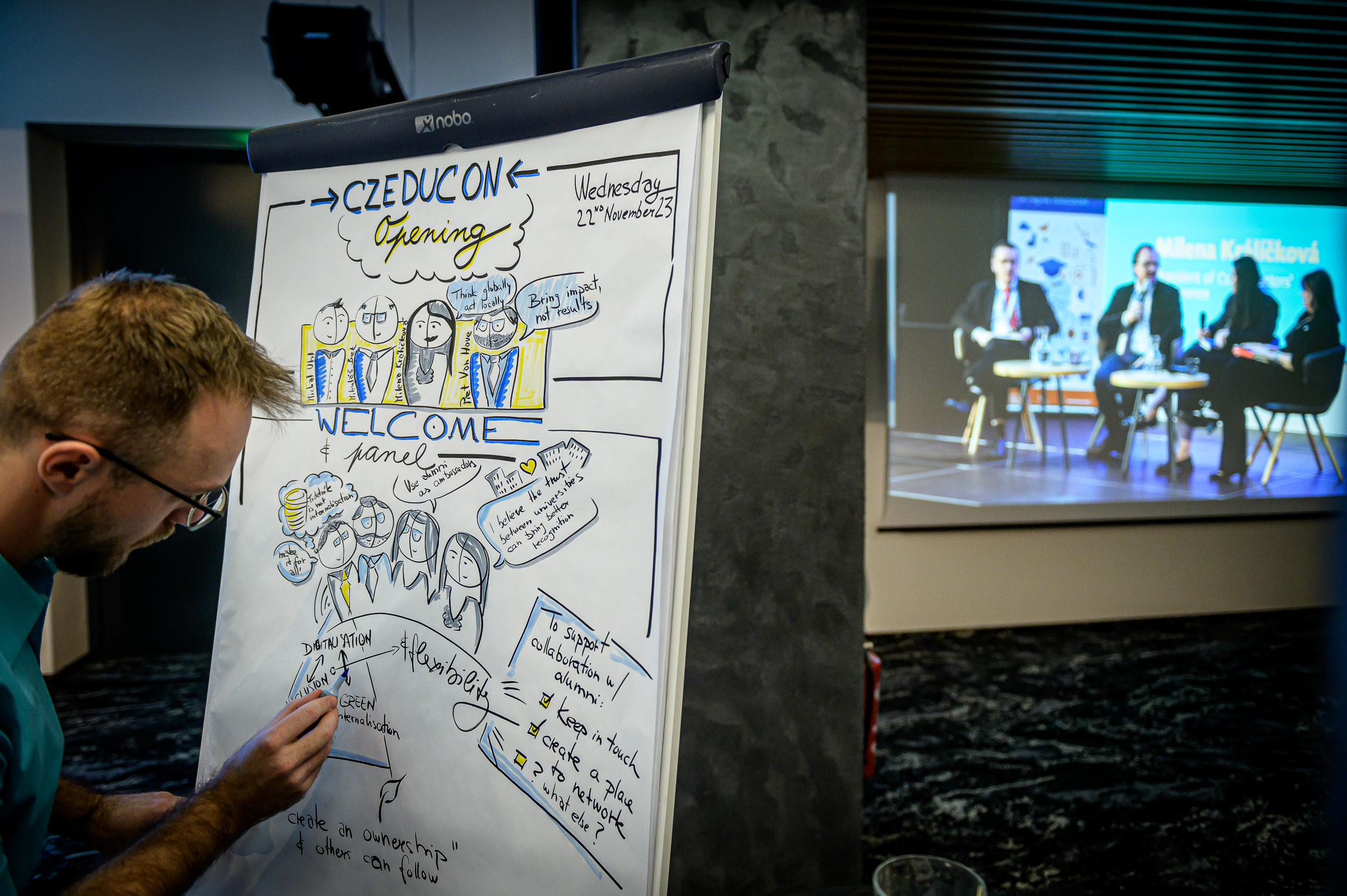 Trainer Juraj Víg captures the highlights of the opening panel graphically. Photo: Petr Zewlakk Vrabec
Trainer Juraj Víg captures the highlights of the opening panel graphically. Photo: Petr Zewlakk Vrabec
Digitalisation of higher education administration and tools can also help. Czech universities shared their experiences in lectures and panels on attracting and retaining candidates, providing targeted support services for students and developing a network of ambassadors and alumni. For example, Prague University of Economics and Business presented a tool enabling students to choose the most suitable destination for their trip abroad in one place (Erasmus Picker); the Study in Czechia initiative held a meeting of its contact network; a panel with representatives of the Prague University of Economics and Business, Czech University of Life Sciences Prague and Czech Technical University in Prague approached the relationship of Generation Z to the Erasmus+ programme; and VSB - Technical University Ostrava presented its virtual campus learning platform EPICUR Inter-University Campus (EIUC). Representatives of international universities then presented their projects promoting cooperation and internationalisation within Europe, such as the Digital DECATHLON of Jade University of Applied Sciences or the SUCTIA project on internationalisation of academics, coordinated by Adam Mickiewicz University. "Internationalising yourself, changing your mindset is different and more complex than internationalising an institution. The goal is to shift the focus from university change to societal change," noted Uwe Brandenburg of the Global Impact Institute about the importance of the SUCTIA project. Filip Dřímalka, an expert on digital trends, also expressed the need for society-wide change in the area of digital skills.
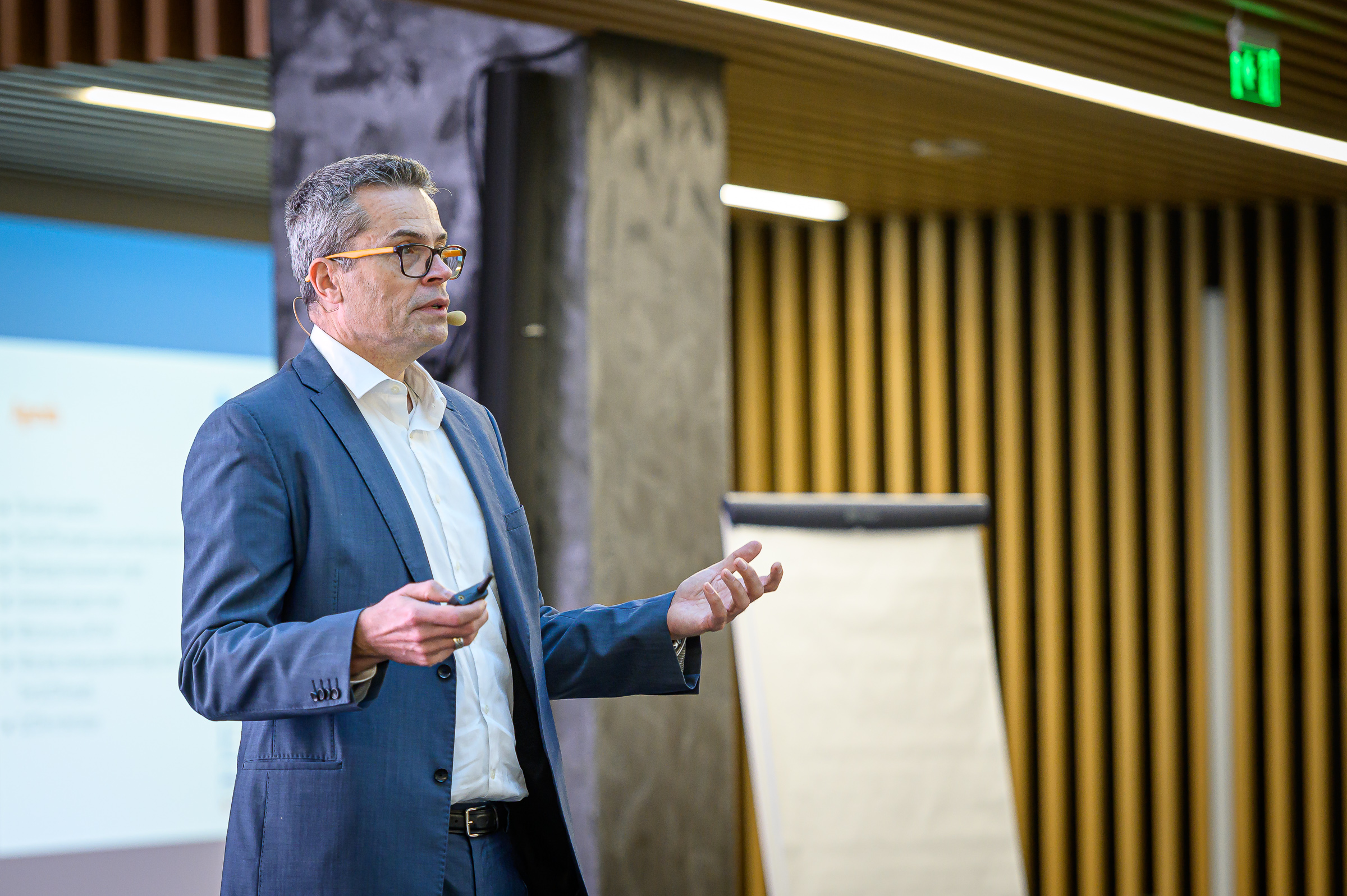 Uwe Brandenburg from Global Impact Institute in a session on internationalisation. Photo: Petr Zewlakk Vrabec
Uwe Brandenburg from Global Impact Institute in a session on internationalisation. Photo: Petr Zewlakk Vrabec
Prior to the start of the conference, thematic pre-conference sessions were held for invited representatives and coordinators. The first of these, entitled "Navigating the Ethical Compass: Research and Education", focused on the issue of ethics and integrity in education and research. New and established members of the European University Alliances then met with representatives of the DZS, the MEYS and the NAÚ for the second roundtable of the year. An important part of the programme was the "Alumni Talks", where participants heard about the experiences of three alumni of Czech universities in Brno - Anjanette Jianna Umali from the Philippines, Novinta Desweriel-Kasencakova from Indonesia and Stuart Andrew Hopkinson from the UK, who have all decided to stay and work here. The conference was concluded by Roman Klepetko, Deputy Director, Head of Higher Education and Lifelong Learning Division at DZS, and scientist Barbora Chattová from Masaryk University with her presentation on the international and cooperative approach to Antarctic research.
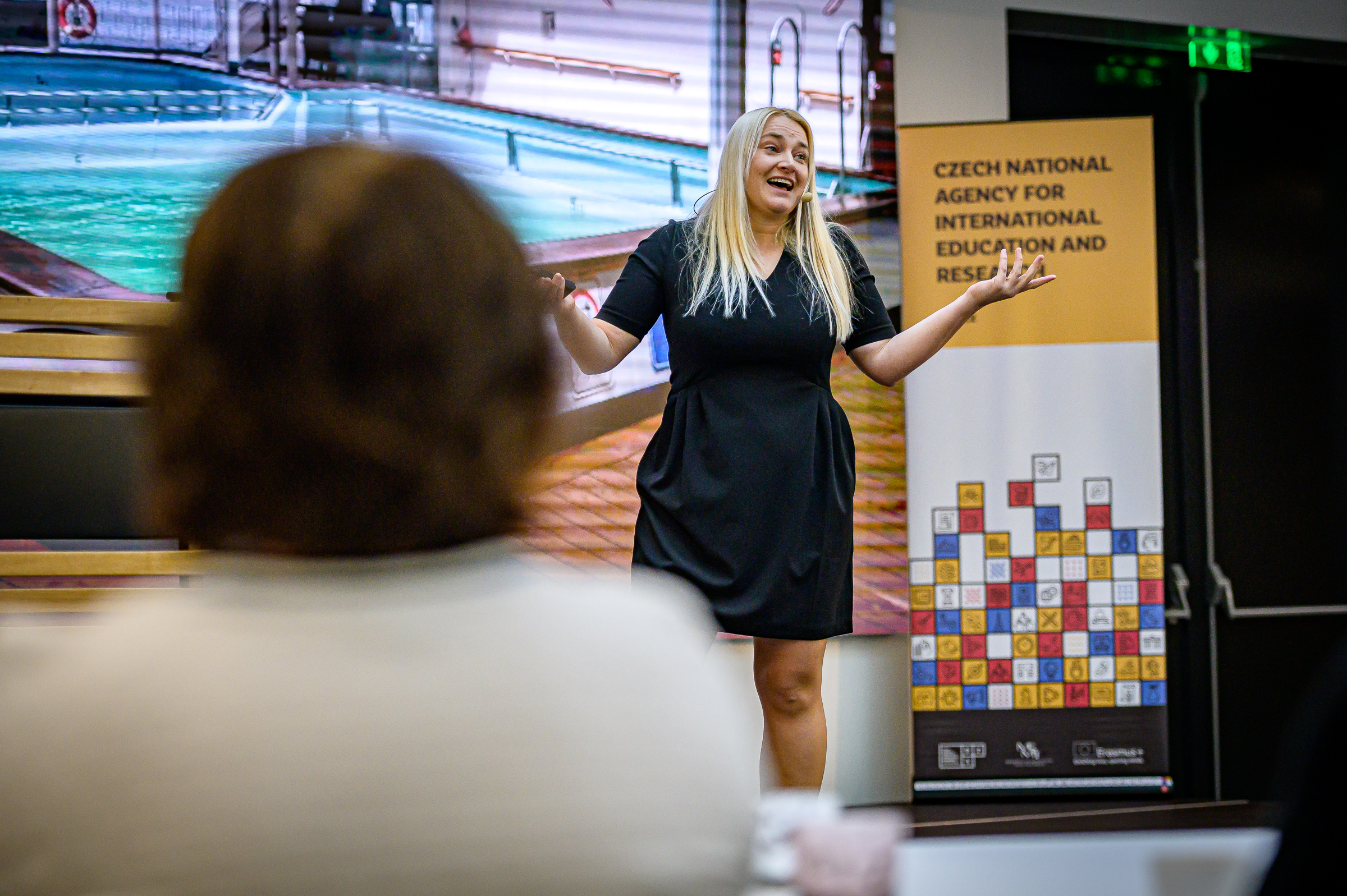 Barbora Chattová describing her experience on a Turkish Antarctic research expedition. Photo: Petr Zewlakk Vrabec
Barbora Chattová describing her experience on a Turkish Antarctic research expedition. Photo: Petr Zewlakk Vrabec
All the main takeaways from the three days of the conference were then graphically recorded by the trainer Juraj Víg using the technique of "sketchnoting", which you can see in the gallery. Did you miss this year's CZEDUCON, or did you miss part of the programme? Presentations from all program sessions and recordings of the Ballroom lectures can be found soon on the conference website.
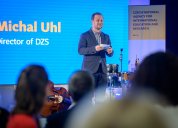
CZEDUCON 2023. Foto: Petr Zewlakk Vrabec
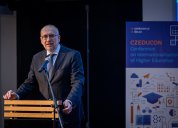
CZEDUCON 2023. Foto: Petr Zewlakk Vrabec
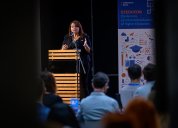
CZEDUCON 2023. Foto: Petr Zewlakk Vrabec
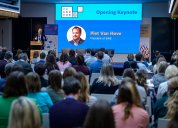
CZEDUCON 2023. Foto: Petr Zewlakk Vrabec

CZEDUCON 2023. Foto: Petr Zewlakk Vrabec
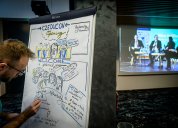
CZEDUCON 2023. Foto: Petr Zewlakk Vrabec
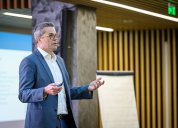
CZEDUCON 2023. Foto: Petr Zewlakk Vrabec
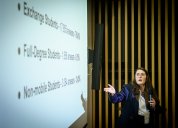
CZEDUCON 2023. Foto: Petr Zewlakk Vrabec
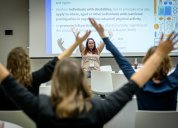
CZEDUCON 2023. Foto: Petr Zewlakk Vrabec
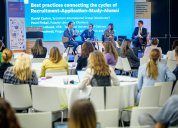
CZEDUCON 2023. Foto: Petr Zewlakk Vrabec
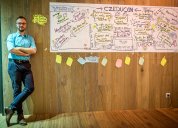
CZEDUCON 2023. Foto: Petr Zewlakk Vrabec
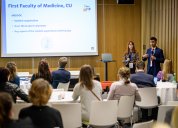
CZEDUCON 2023. Foto: Petr Zewlakk Vrabec
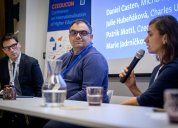
CZEDUCON 2023. Foto: Petr Zewlakk Vrabec
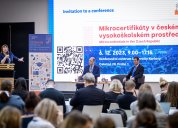
CZEDUCON 2023. Foto: Petr Zewlakk Vrabec
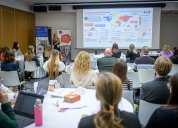
CZEDUCON 2023. Foto: Petr Zewlakk Vrabec
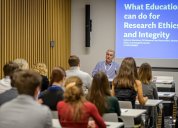
CZEDUCON 2023. Foto: Petr Zewlakk Vrabec
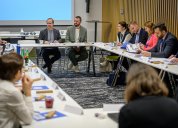
CZEDUCON 2023. Foto: Petr Zewlakk Vrabec
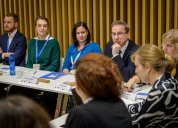
CZEDUCON 2023. Foto: Petr Zewlakk Vrabec
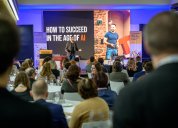
CZEDUCON 2023. Foto: Petr Zewlakk Vrabec

CZEDUCON 2023. Foto: Petr Zewlakk Vrabec
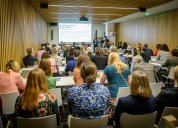
CZEDUCON 2023. Foto: Petr Zewlakk Vrabec
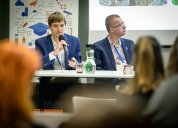
CZEDUCON 2023. Foto: Petr Zewlakk Vrabec
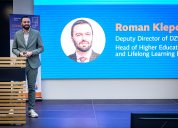
CZEDUCON 2023. Foto: Petr Zewlakk Vrabec
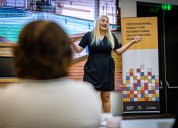
CZEDUCON 2023. Foto: Petr Zewlakk Vrabec
